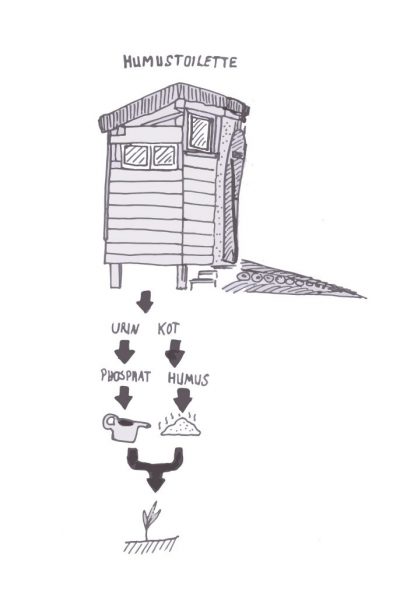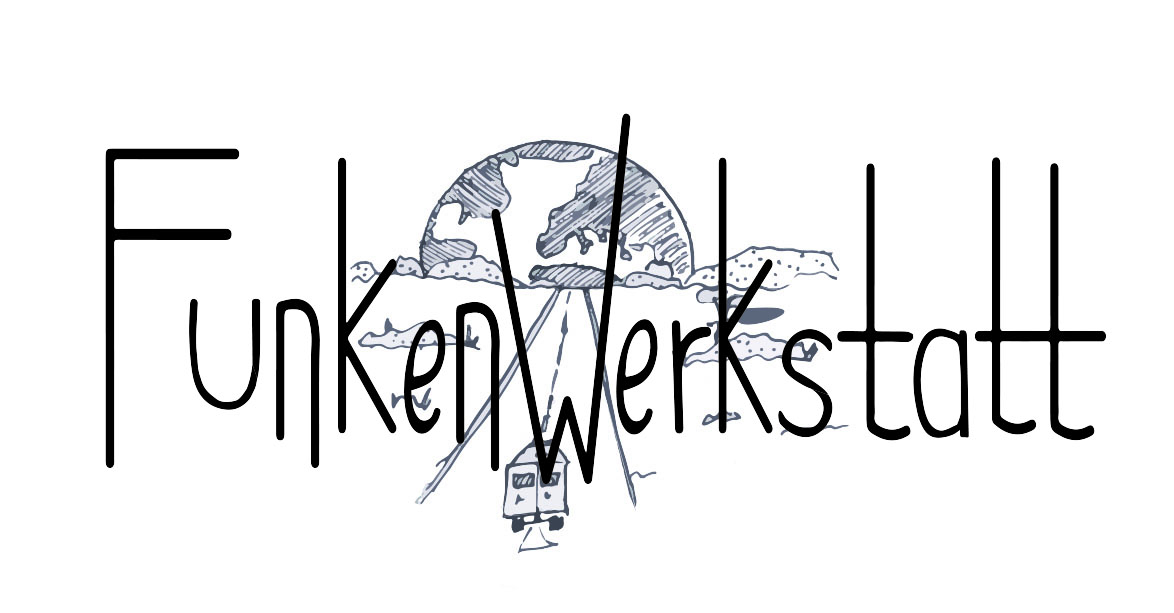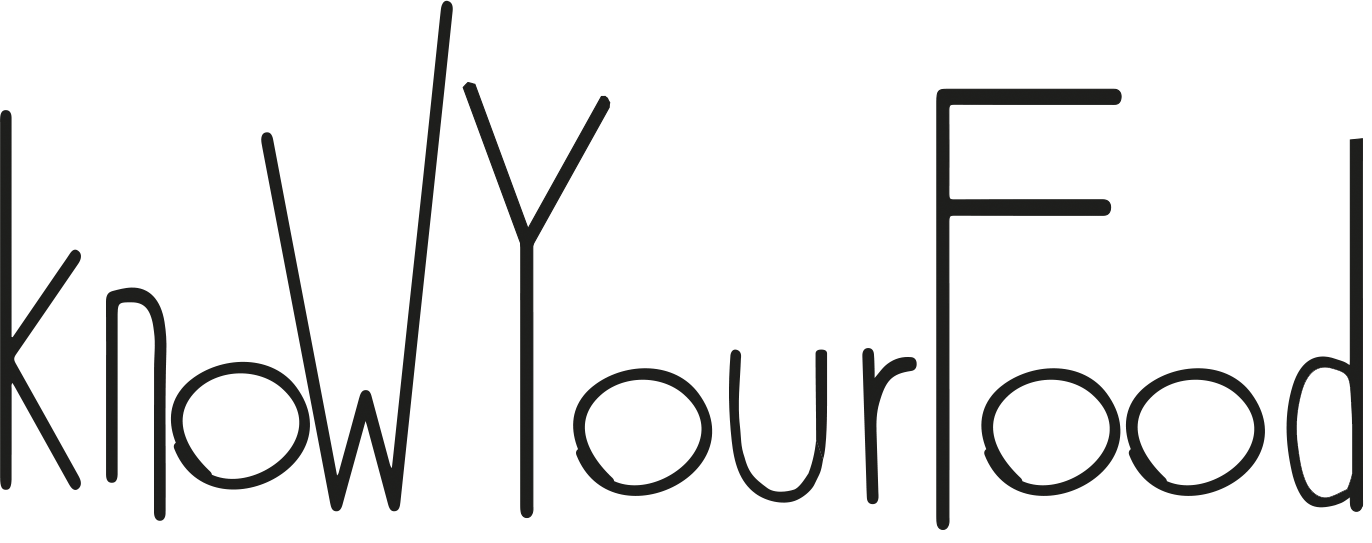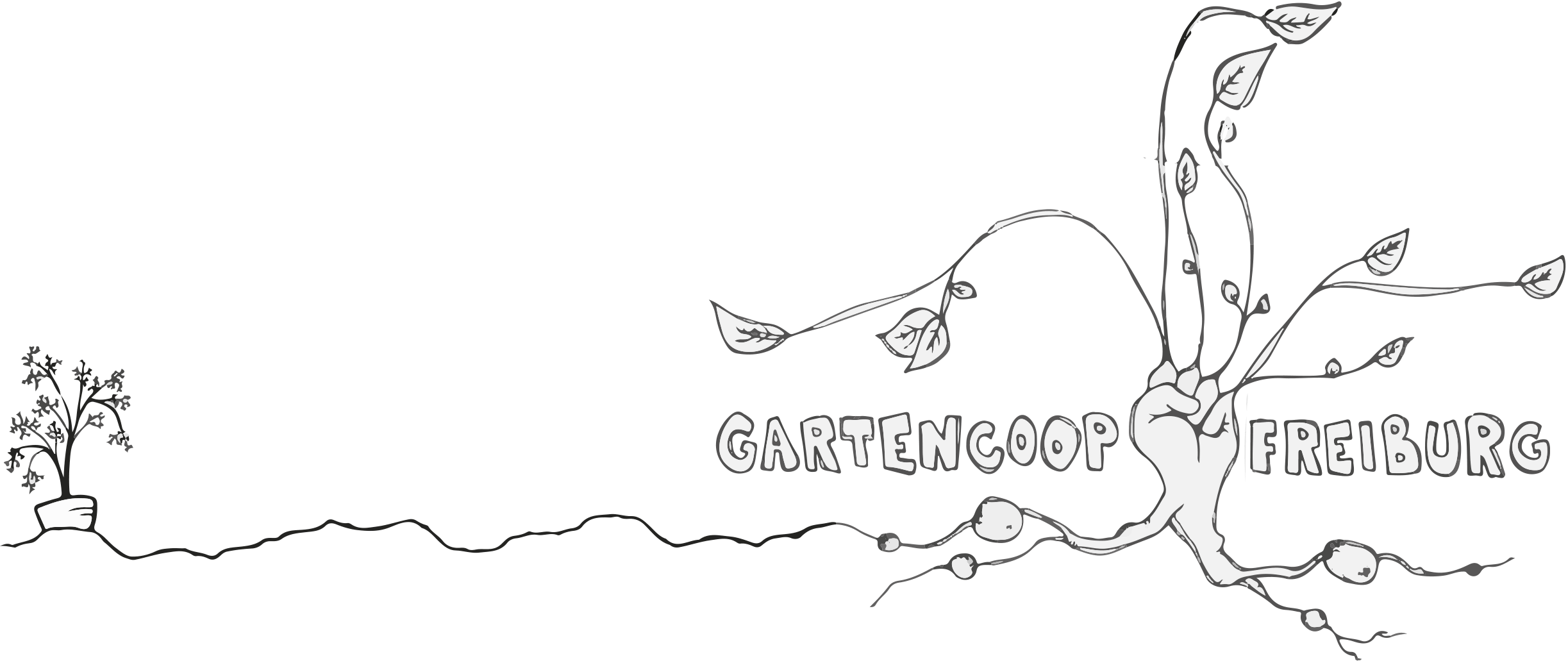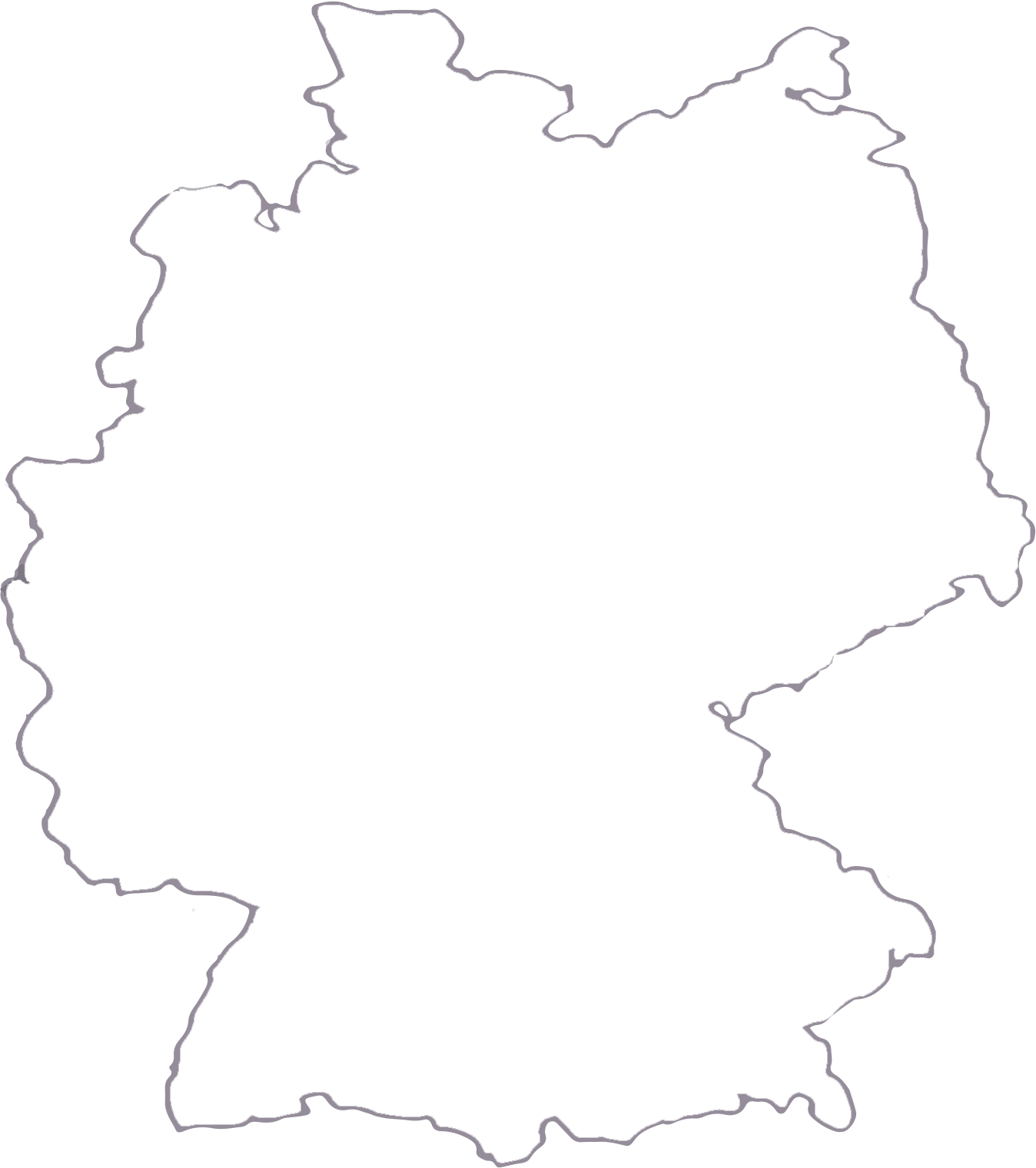

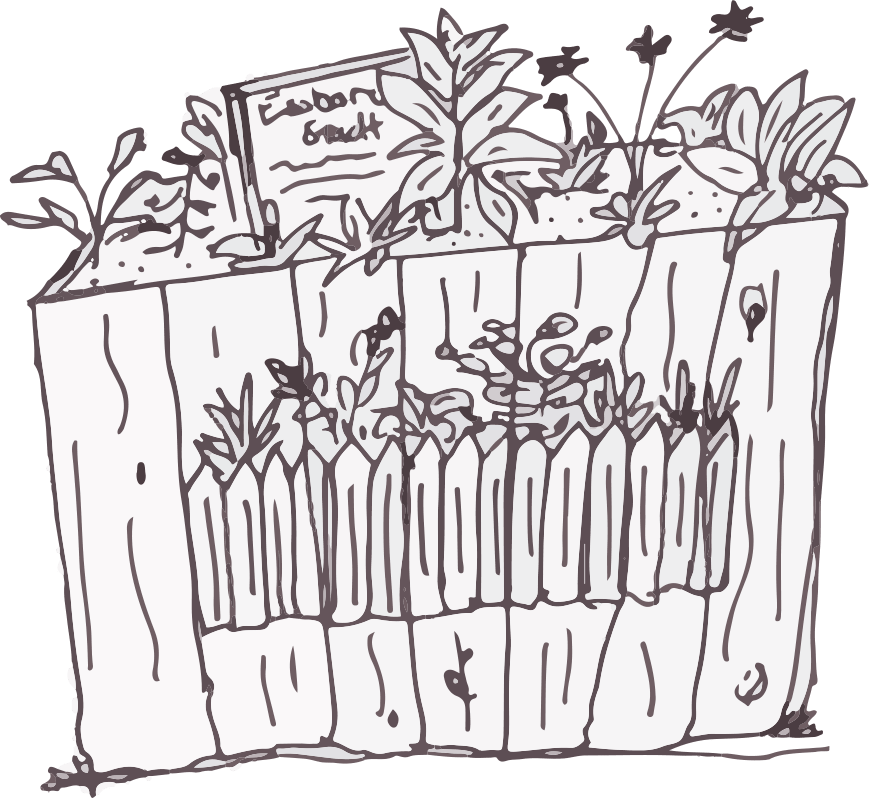
Nowadays, in our globalized world, most people are alienated from the food they consume. One is used to go to the supermarket and get everything s/he wants. Oftentimes we don’t know – or it is simply of no interest to us – where our food comes from or which fruits and vegetables are in the season. We even don‘t have a clue about how those plants look like on the field or in the wild.. But there are some initiatives that try to tackle this issue and change the way people think about and consume their food.
To meet up and learn more about that, we have been in the City of Jena in Thüringen and talked to the founders of some of the local initatives.
Precisly, we looked at three urban gardening projects in Jena, marked as red leafes on the map. But what actually is urban gardening?
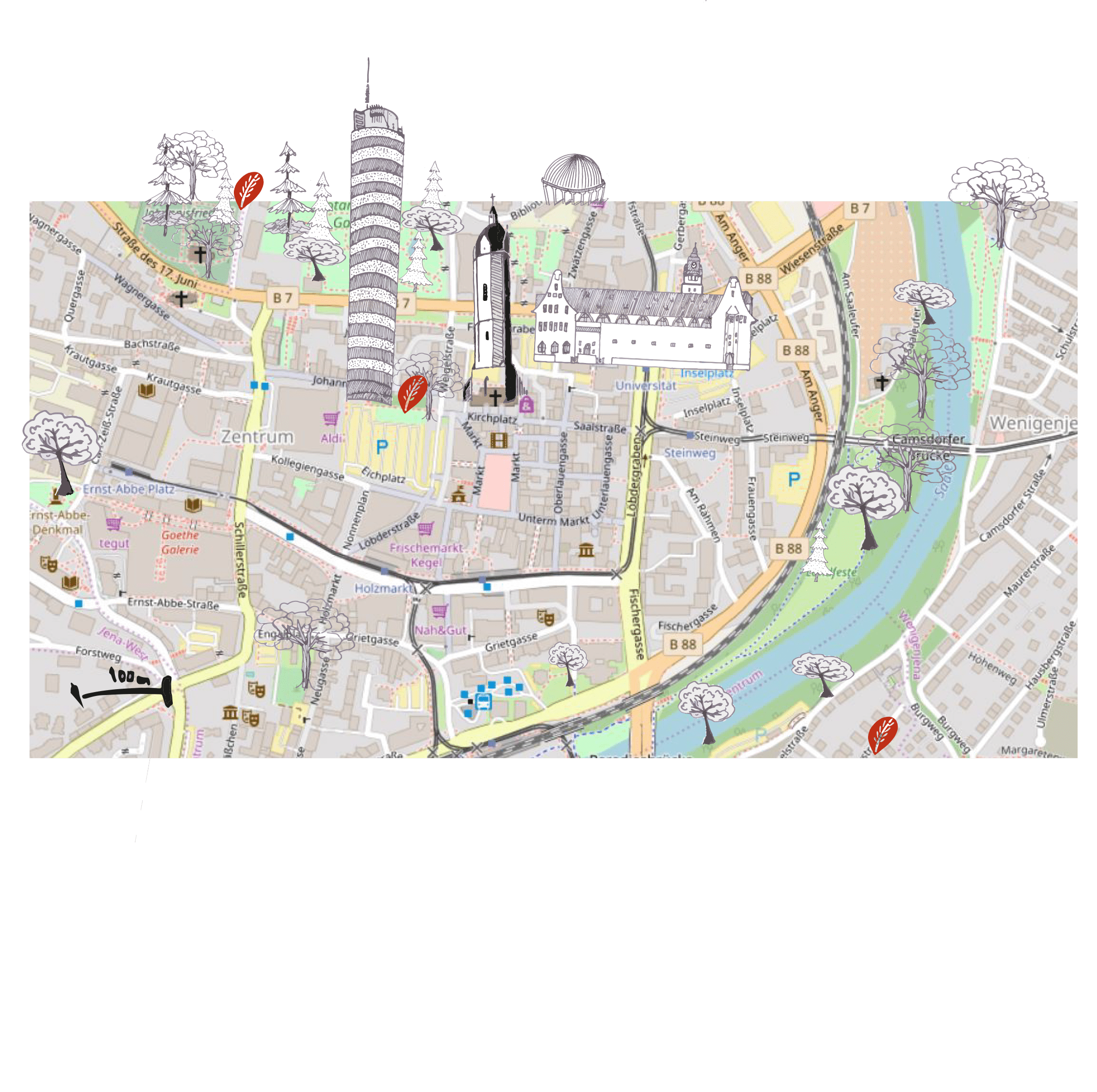
Urban gardening is the process of growing plants of all types and varieties in an urban environment. Urban gardening, which is also known as urban horticulture or urban agriculture, encompasses several unique gardening concepts, including Container gardening, Indoor gardening, Community gardening, Guerilla Gardening and Greenroofs.
I sat down with Roland Bischof, a biologist from Jena, who is part of a few of those initiatives, and talked to him about the projects he’s engaging in. Initially having come to Jena to study Biology in 2002, Roland came back in 2009 and since has been working in the field of agronomic research and education. After the research projects lessened, he wanted to expand his scope ofactivities, starting to work with farmers, schools and engineering offices to make the most of hisknowledge. This is how he came to work with the local projects Solidarische Landwirtschaft („Community Supported Agriculture“) and Essbare Stadt („Edible City“).
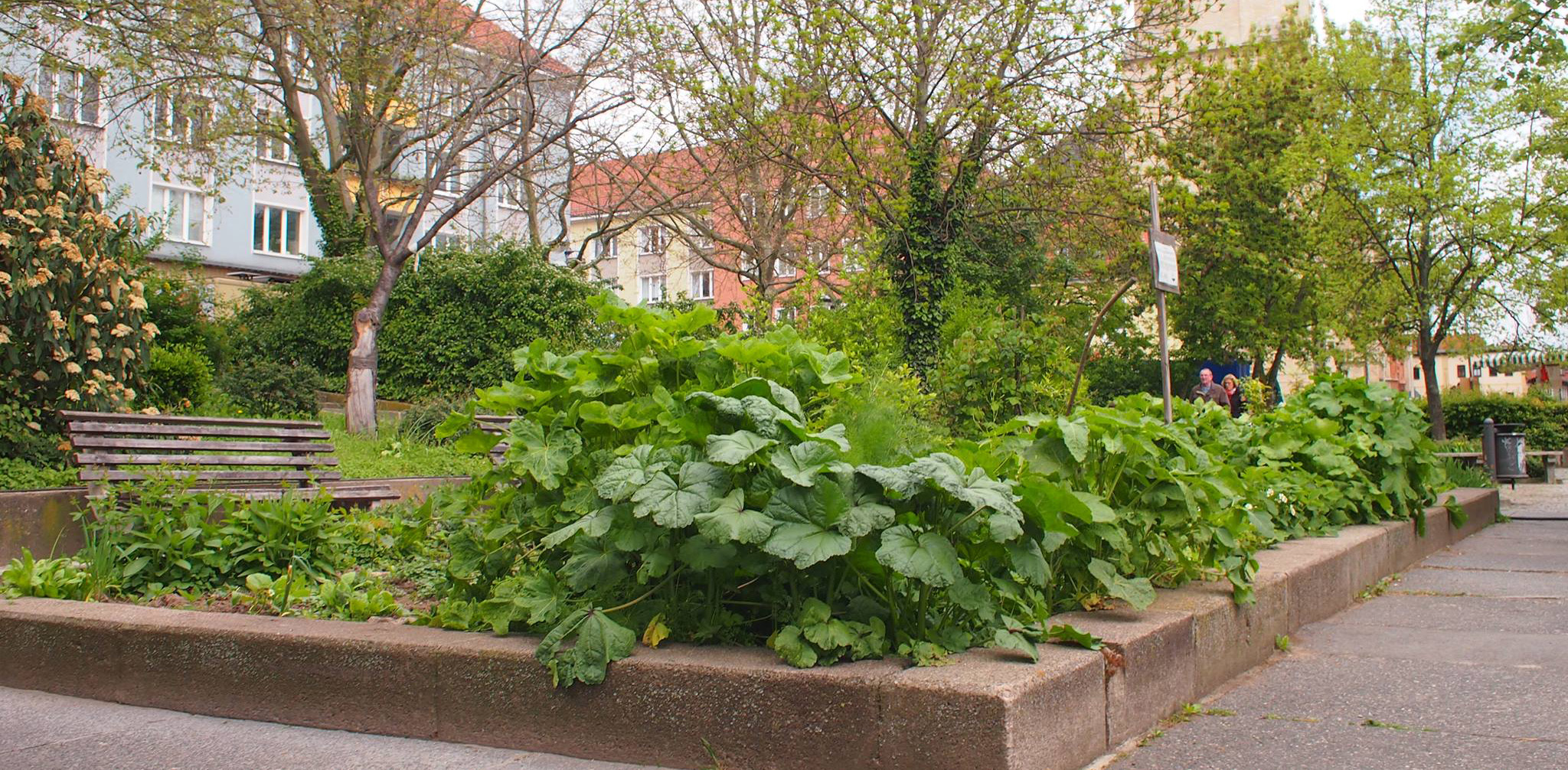
The latter, Essbare Stadt, is a projec t which, starting in 2009, tries to achieve a closer connection between the local growers and the consumers, minimizing the transpor t distance of the food. Work ing together with a local gardening center and integrating handicapped people, the registered association cultivates an area of 2000 m². At the beginning of the year, all those who are interested (up to 25 parties) can buy holdings of the harvest for around 480 Euro, guaranteeing the deliver y of one box of fresh and seasonal vegetables and fruits per week – if available, even juices and honey.
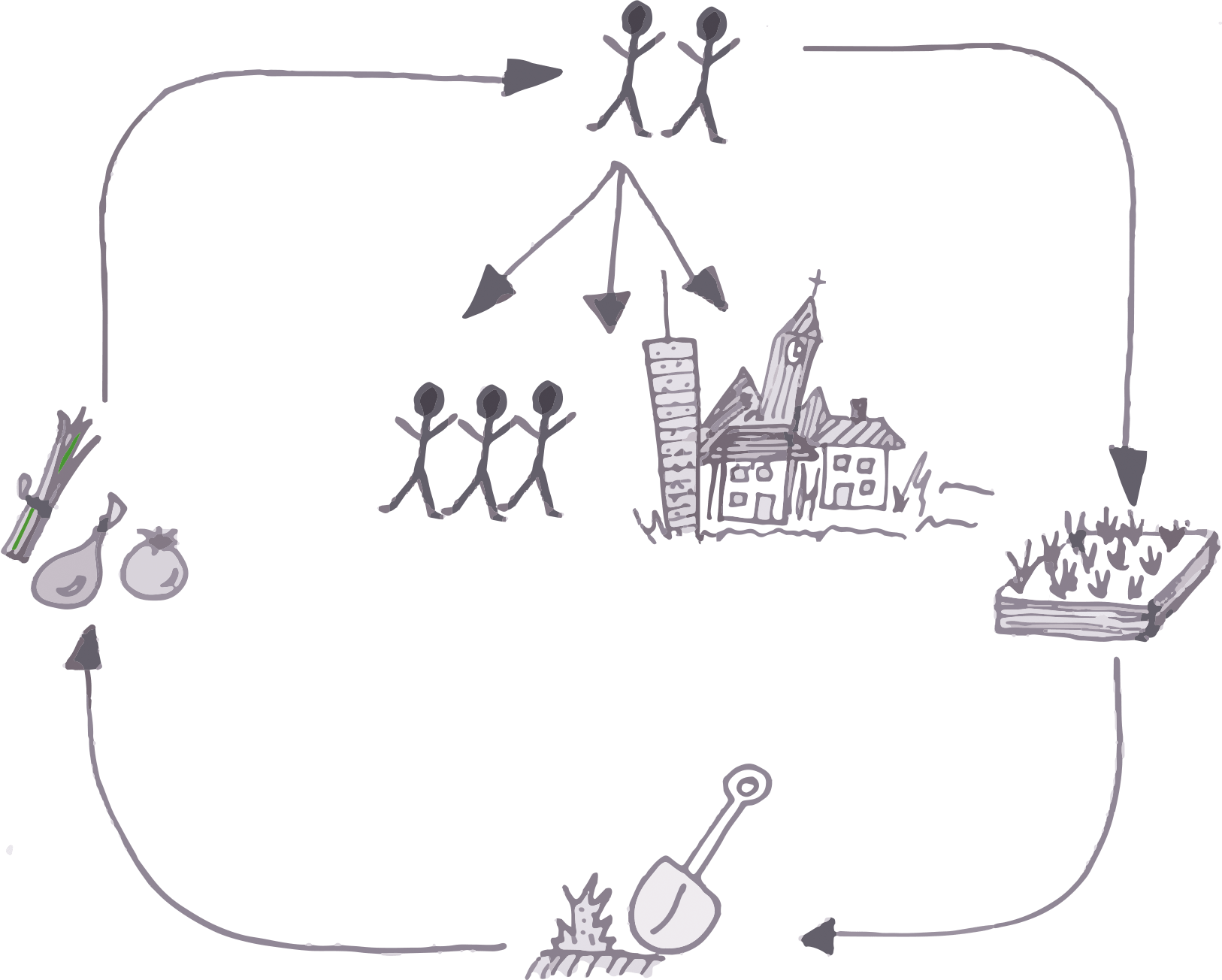
Thus, as shown on the left, it is a perfect example of a regional economy: Locals connect to regional growers through financial support and in return the growers cultivate and harvest vegetables and other products for them.
Naturally, the amount of food they get varies throughout the year: “During summer and autumn, it is oftentimes more food then the customers alone could eat themselves. If that is the case they share it with others, for example inviting friends for dinner“, explains Roland, who supervises the plant cultivation. In the winter months, the customers get a box every two weeks only, because of the lower yields. “You get more excited about the products if they are not available all throughout the year. You get a greater appreciation for the goods.“ All costumers have the possibility to visit the fields and take a look at the plants and how they are grown.
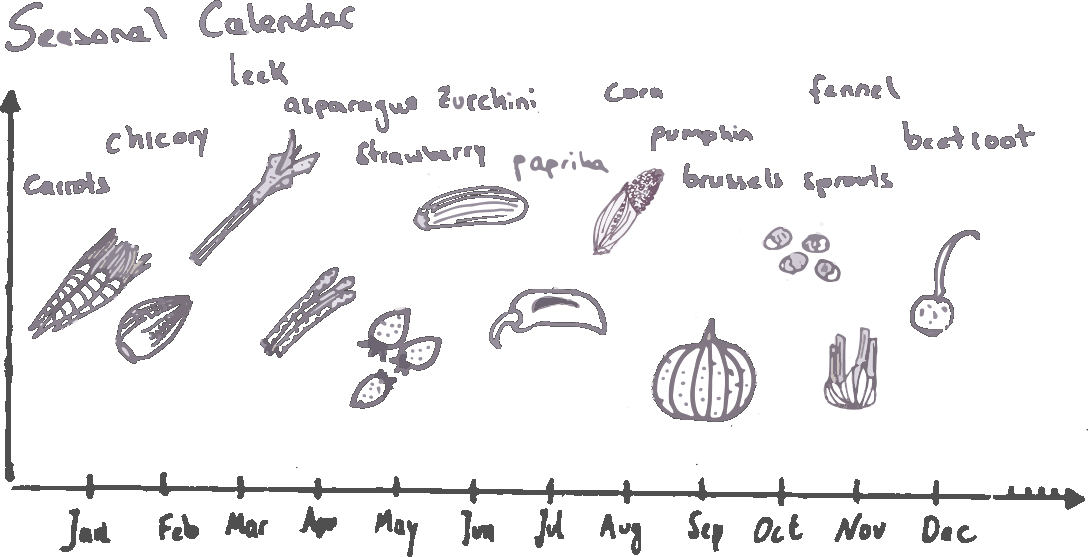
The Essbare Stadt collective pursues a pretty similar concept. People who are growing up and living in the city sometimes have not seen the matching plant to the food they consume in everyday life. A simple reason for that is that usually those plants do not grow in an urban surrounding – unlike the Essbare Stadt. The collective was founded in 2013 by around five people who had heard from this idea that had been established in other cities before. The idea is simple: Use urban areas to grow fruits and vegetables, thus people are able to see how it is done! Furthermore, some people may see that it is possible to use even a very small area to grow food and to not always have to rely on supermarkets. This is what Roland emphasises about the project: “For me, the educational part of this project is the most important. You probably will not grow enjoyable food right next to a busy road. “When founded, the collective approached the public authorities to ask which areas could be used for the project and, after about half a year, they achieved an agreement. “The areas were not ideal, but we made the best out of them“, explains Roland. They now look after three areas in the city, with two people responsible for each. They meet once per week to discuss upcoming events, oftentimes right in the concerning areas and work on
developing them afterwards. One of those areas is located right in the city center, next to the biggest parking lot of the town. With flowers and different shrubs they transformed it into a place where people now enjoy the sun and pick strawberries, naturally for free, between the shopping centers. The project furthermore addresses the community spirit, which is about usingthe city together. Even some local companies joined the movement and put little raised beds in front of their offices.
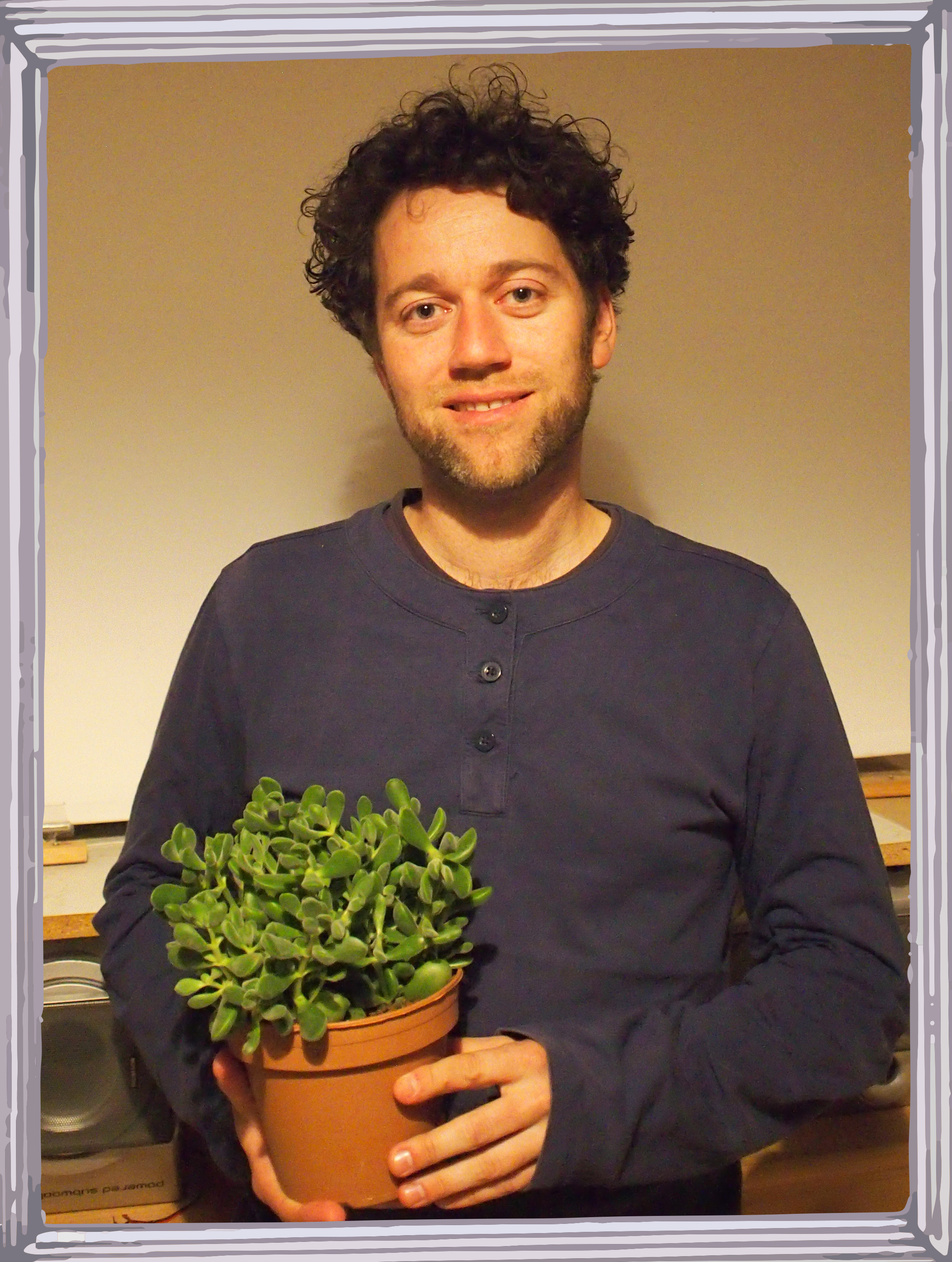
If you drew some inspiration from those projects and maybe want to start similar ones in your city, Roland advises threesteps: “First search for allies, because together you are more likely to convince people of your concept – especially the officals. Secondly, inform yourselves about how other people tackledsuch projects and, believe me,there are lots of them. Once you are well prepared, go to the citys‘ officials and pitch them your idea.“
Here is some information about the projects that were mentioned in this article:
Nature, Culture
Urban Gardening in Jena
Jena is just an example how some initiatives try to change the relation between food and their consumers. Oftentimes people don´t know where their food comes from and what is the matching plant to the fruit or which fruits and vegetables are in season. Urban Gardening tries to tackle this issues…
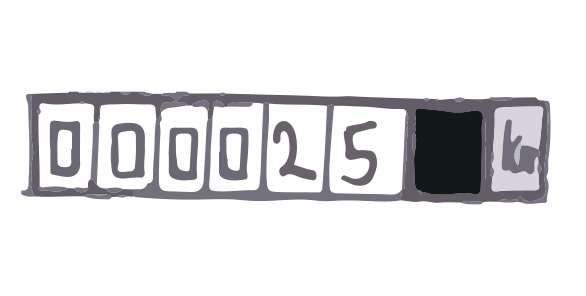
crowded streets, traffic jams, noise and pollution – today it’s part of our everyday urban life.
Factors that certainly not only reduce the quality of life in a city, but also contribute to global warming. According to the UN, more than 75% of all people are expected to live in metropolitan areas by 2050. Some ways of facing these social, economic and environmental challenges and to cope with this development is using more public transport, an increasing range of sharing concepts, as well as the expansion of the bicycle infrastructure. Some cities are reacting to this change with so-called „green zones“. Other’s try to ban traffic from the City centers.
New traffic solutions and concepts are needed in conjunction with city structures and planning, especially in urban traffic zones in order to be able to react better.

In Denzlingen, just a few minutes from Freiburg, mobility will be tackled with a new concept for the future. ‘Carla Cargo’ – a start-up which produces bike trailers and handcarts designed for larger loads, pushes forward a fossil free transport solution for urban areas.
From a hobby project, which at the request of one of the largest SoLaWi `s of Germany, the Gartencoop, was initiated, and developed in recent years as a small start-up, Carla Cargo tackles with their new innovations in transportation daily urban problems. The Gartencoop, with its fields is located far outside the city center of Freiburg, therefore it is dependent on a suitable transport method of their goods. The idea to bring the vegetables more environmentally friendly into the city, ultimately the first Carla was born. „I saw that the vegetables are transported by bicycles and then we looked at it with an engineering perspective, what could be optimized on the existing system?
The realization came quickly that we definitely need an electric motor and a new brake system,“explains Markus Bergmann, founder of Carla Cargo and sympathiser of Gartencoop.
„The beginning was difficult. Many prototypes were made, a lot of trials, testing and nighttime welding .“Markus and his small team soon realised that without financial support the reality of the project would not have been possible. He came up with the idea of Crowdfunding, i.e. the support of a community, to advance and make the project become alive. Using crowdfunding they collected about 7000 € which in the implementation and further elaboration of the idea helped decisively.
In 2015, a first functional prototype was created, representing a completely new concept. The feedback of this novel product was great, but with the collected funds it was only the beginning.
„From a >>“ Hippie idea „<< we have become business people.“ More Carlas’ should see the light of the world.
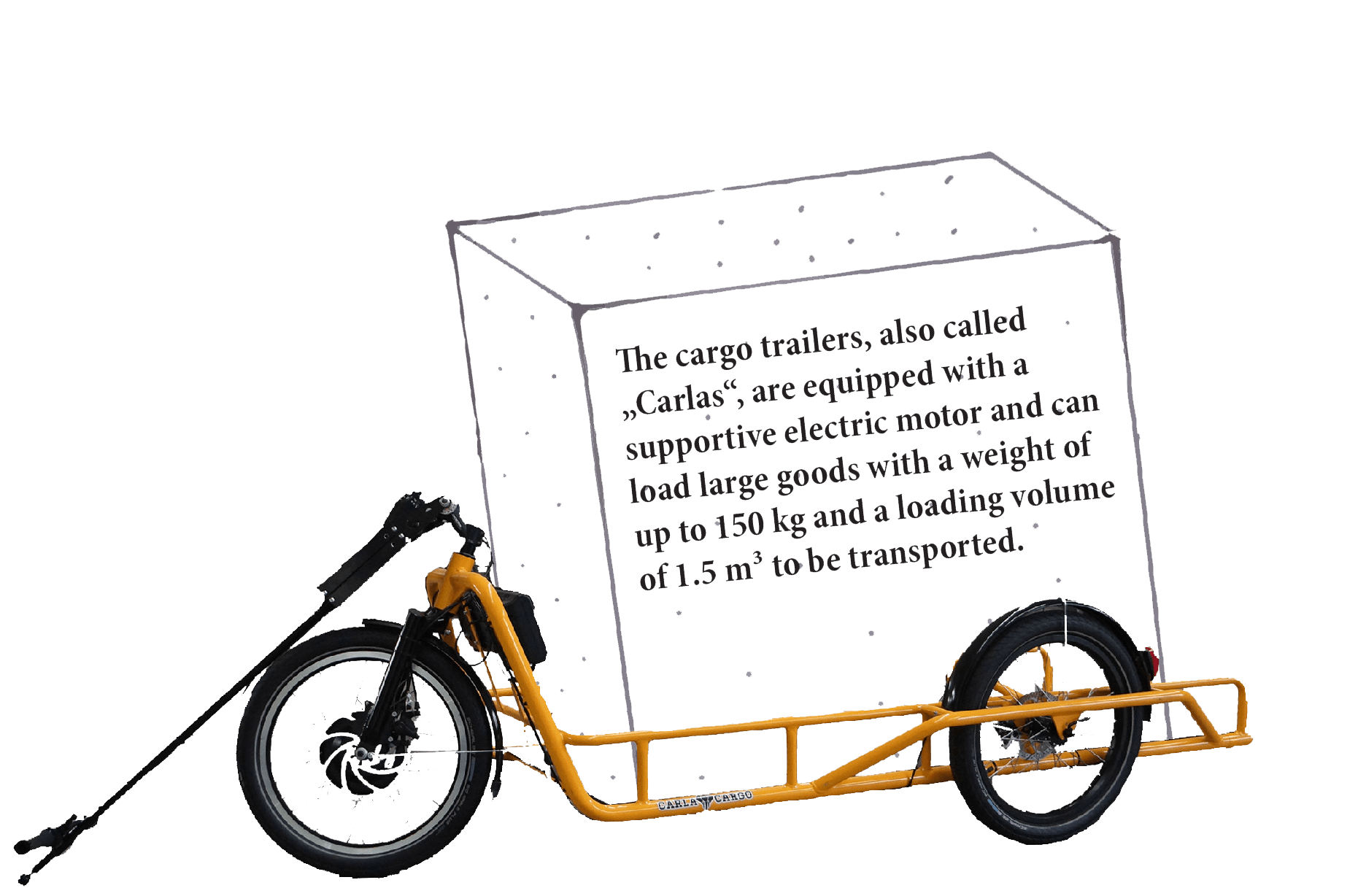
Markus and his team followed the ideology, using open source blueprints of the Carlas which are accessible for everyone. Due to the swarm intelligence of the masses, the Carlas should be further developed and optimized. ”Unfortunately, the open source concept brought not the desired impact, we just received little input from the swarm intelligence.“ For Markus, Open Source is not as easy to implement with hardware or products in comparison to software. „It was difficult, added with the economic pressure. There were about 20 Carlas’ worldwide according to the manual built. As a result, ideas have come in, but they can not be directly implemented or economically exploited.“
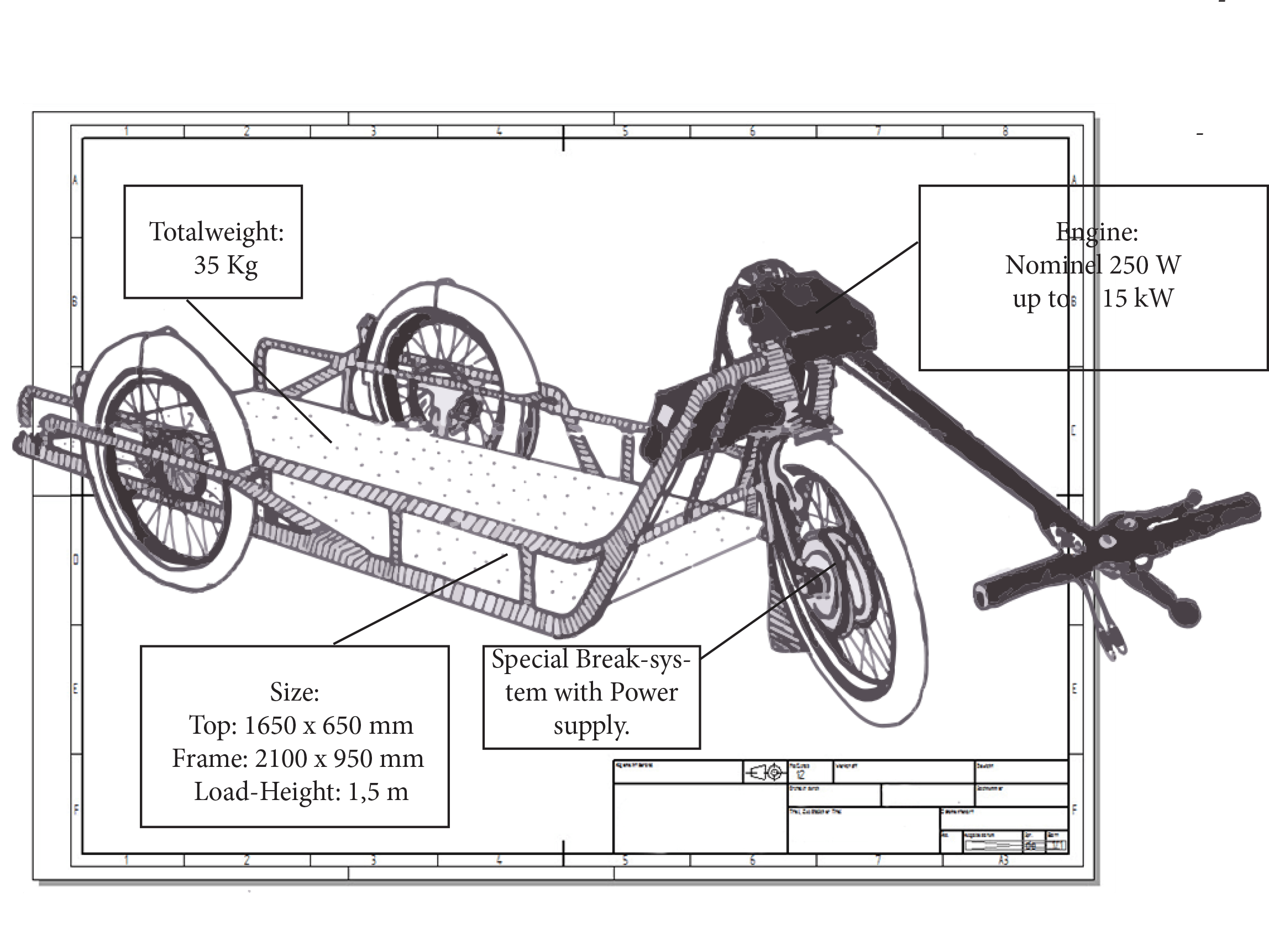
Nevertheless, Carla Cargo should remain as a concept open source, despite the lack of a patent and with added competitors in this field. Another thought of the free availability was to simply see more Carlas in the world. „Every Carla replaces a car in urban surrounding. This creates less CO² – that was our biggest motivation. “
Therefore, in order to found the company and to be able to produce more Carlas, a loan had to be taken. With the credit the economic pressure grew on Markus and his team. Carla Cargo is currently instructed to have its parts developed in Denzlingen manufactured in Europe and Asia. 2016, 60 frames have been ordered from Poland. Brake-system parts come from Hungary. The exchangeable batteries, which are installed in a Carla come from China. The lithium probably won in Africa. „That the lithium is won in Africa, probably under severe conditions for the workers, of course, we do not find well. We are aware and we are looking for better solutions. “
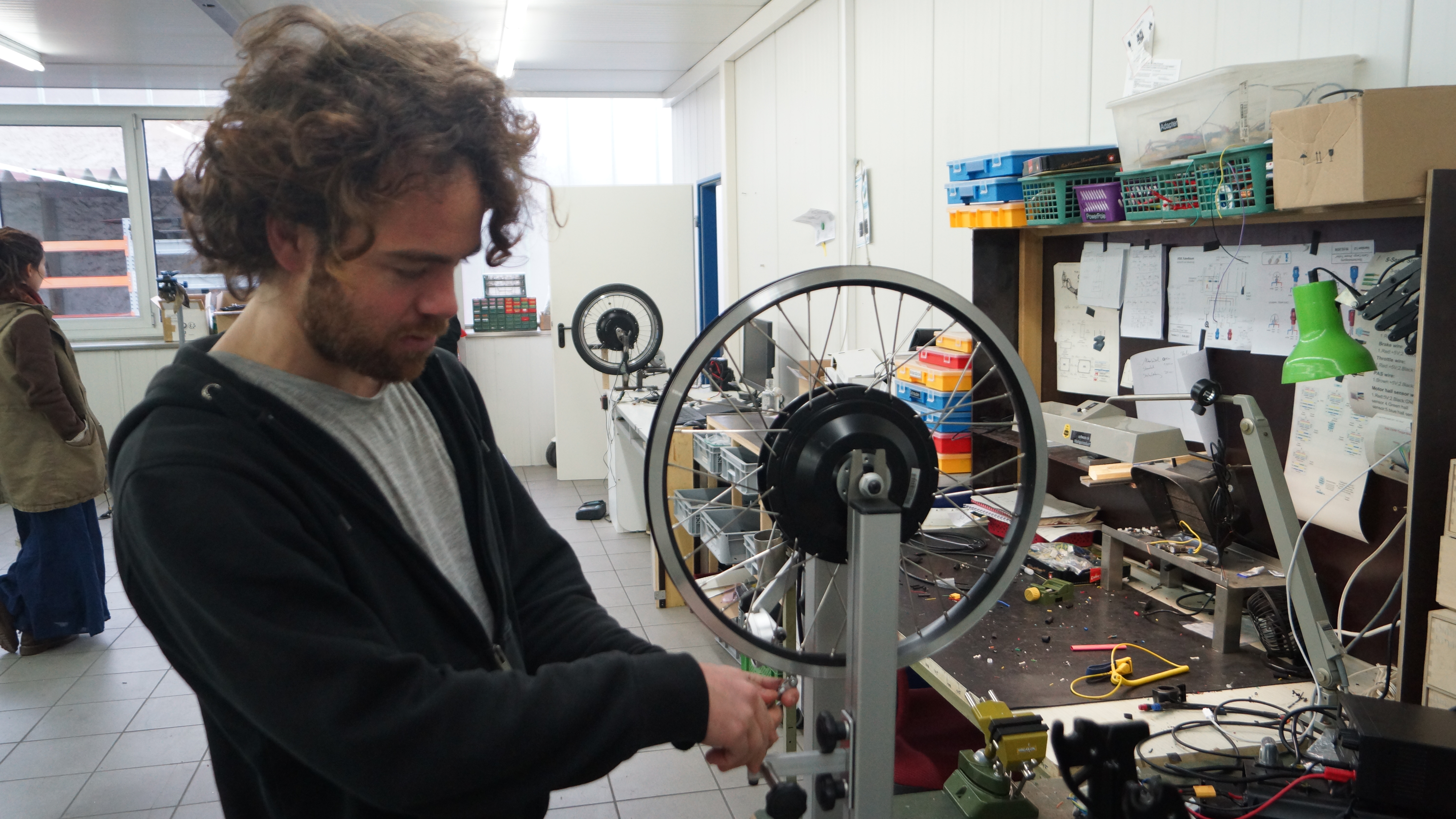
In the future, the Carlas are no longer dependent to suppliers from Europe and Asia. A Carla „Made in Germany“, directly in the Black Forest is Markus biggest wish. To make Carlas even more sustainable. However, higher volumes are needed. “Due to the low number of pieces, it is not currently possible to lower prices. Recently a SoLaWi called us and their concept was similar to the garten coop. Of course we were excited and see such projects as a dream client, but they wanted the Carla without financial compensation, which caused of the economic pressure which was not possible for us.“
„The Carla is simply worth its price,“ explains Markus. There are currently about 100 Carlas in the circulation. 100 more will be added this year. The use of the carla is diverse and creative. After only three years, the Carla has other uses as its means for companies, mobile beehives and used as a dining and music cars for example.
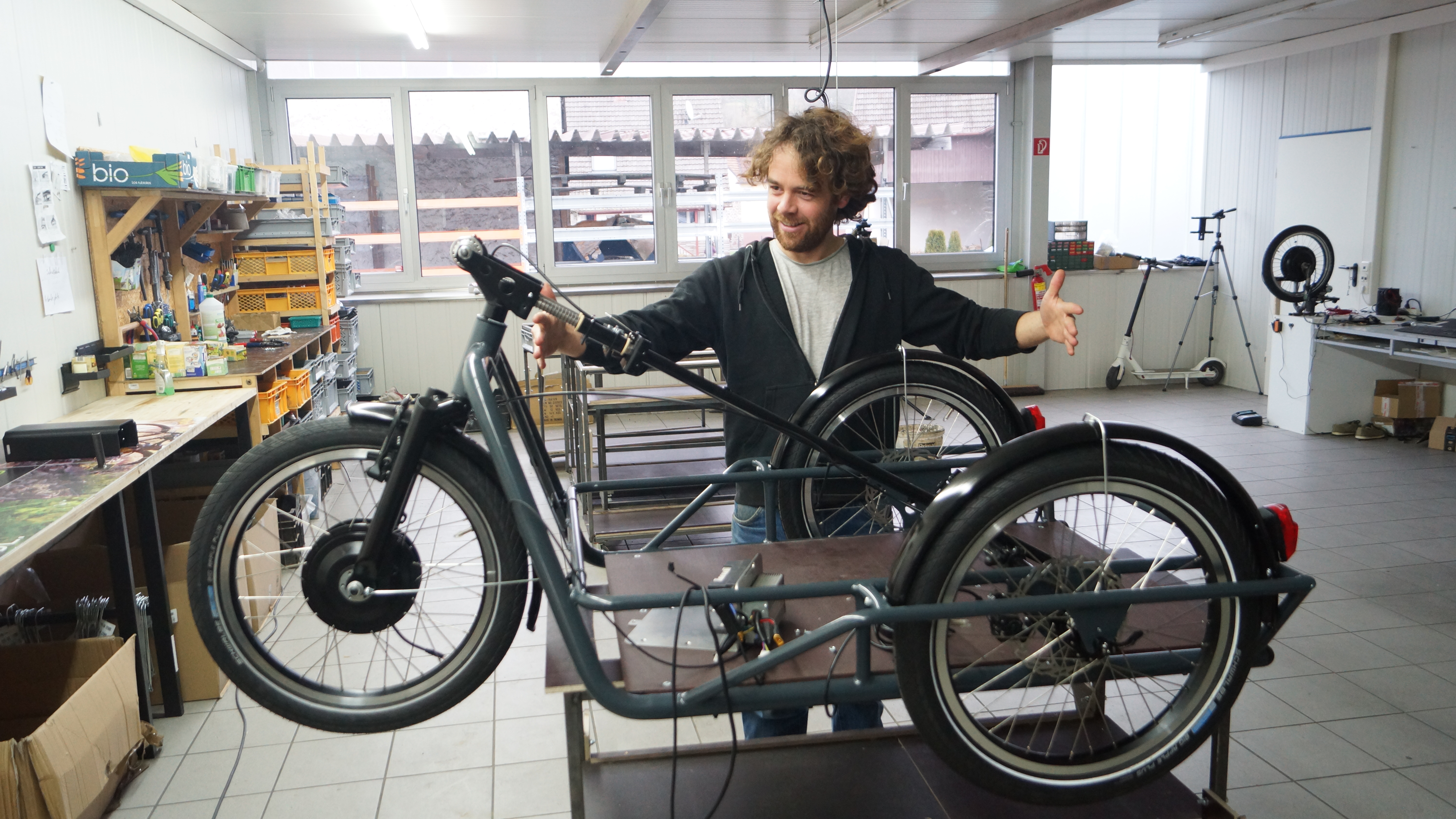
We asked where he sees the future of his project, Markus replied: „We have a top motivated Team, we will go ahead step by step. We do not want to get stuck on innovation, but continue to improve it. We do not know yet, where the journey with Carla Cargo goes. I would like, to see more movement towards e-mobility in Germany in general. Rental stations for Carlas would be for example, a topic of the future.“
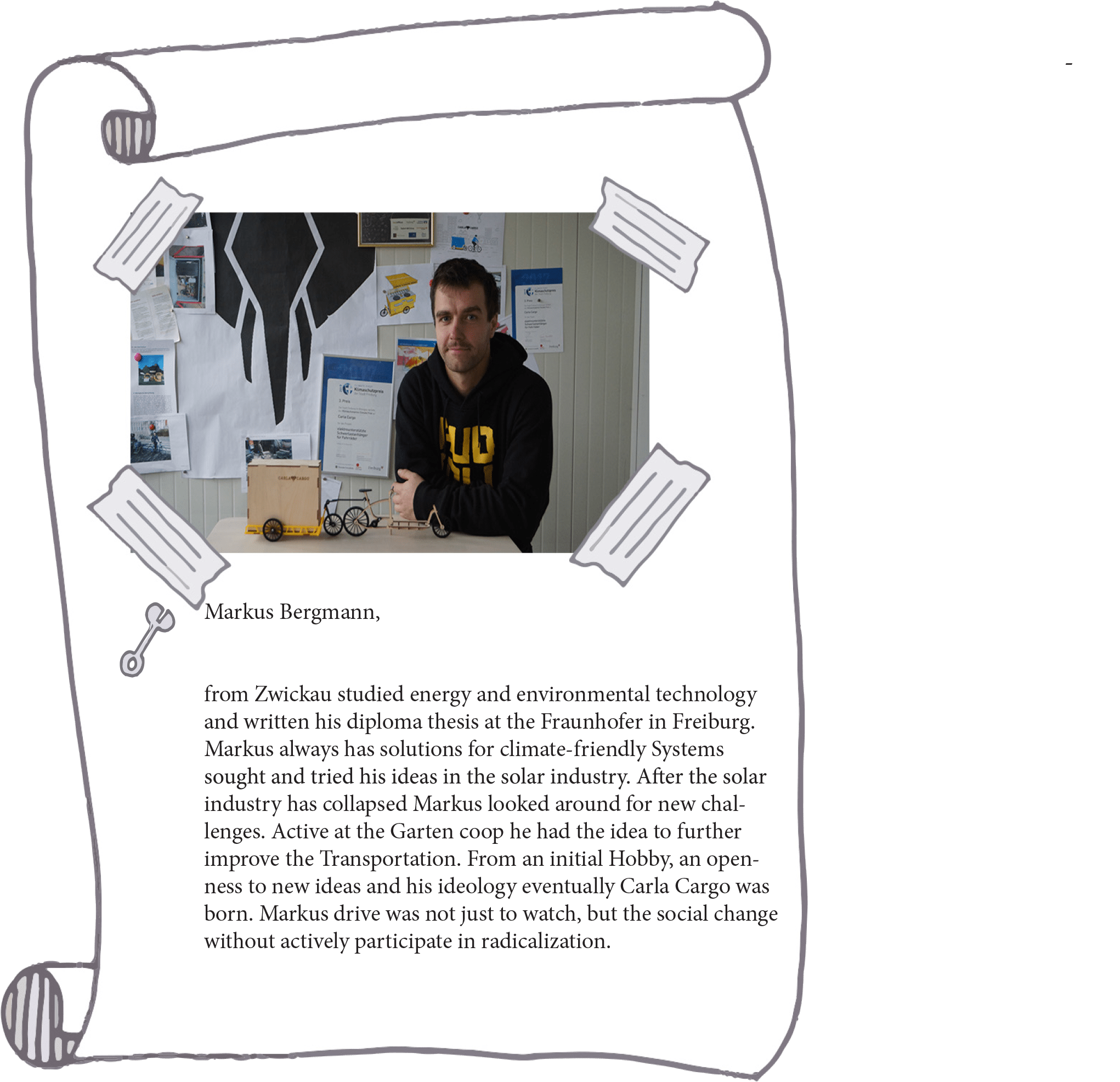
We are sure that Carlas will shape urban traffic in the future. With Carlas the mobility behavior of suppliers could significantly changes and thus large amounts of CO² could be saved. With the help of their flexibility, it can be appropriate to the characteristics of the urban surroundings. We hope that many Carlas will see the light of day and thus the future plans of Carla Cargo will be realized. We thank Markus and his team sincerely for the insights at Carla Cargo.

Links
Culture

Ronny, with his forest garden project of Permakultur Dreisamtal e.V., got us to think about how globally the existential question of food could be solved in the future. In Freiburg, we found an agricultural project which represents a model of how we can shape an alternative way of living with humans, the earth, plants and animals in order to contribute to societal change. It‘s about changing the food production so that environmental, resource-saving production methods and strengthened of small-scale structures are created.
The Garten Coop sees itself as part of a movement of solidary agriculture and is organized in a democratic way. Their goal is to produce healthy food that can be produced independently as possible from market pressures. In addition, the harvests are distributed equally within the community and regardless of the income of its members. Fairness and good working conditions for gardeners and farmers are the central aspects of the association.
In 2009 spurred on by such visions, a community of equal interests came together, so that only two years later, a lease agreement for a nine-hectare land could be signed in Tunsel near Breisach. The Garten Coop started with 170 members and grew up to 260 members today. The running costs of the whole project will be supported by the principle of „common economy“. This means that the financial burden is shared by all members and everyone is equally involved in collective ownership.
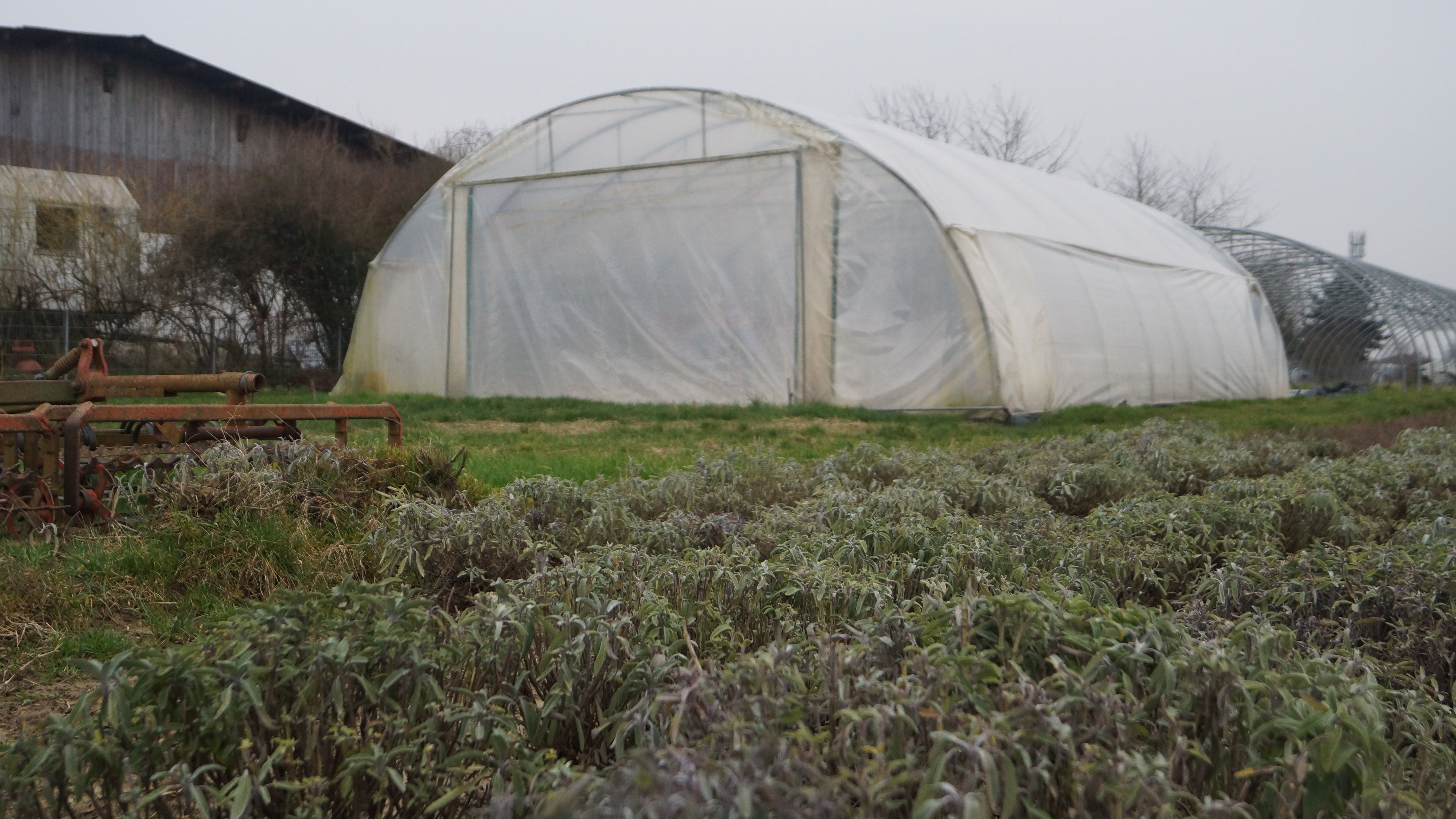
The infrastructure of the farm in Tunsel set many things and gave the borders of the project. The farm has several large barns for housing agricultural machinery and production resources which is own by the Community. In the middle of the courtyard is a large container that is used by the gardeners and members as an office, operations center and kitchen. After harvesting, the vegetables get washed in the yard and processed for bringing them to Freiburg. The aim of the Garten Coop is to produce climate-friendly and locally. For this purpose, a separate storage room and the production of their own fertilizers is essential. Cows provide the fertilizer for the field, thus creating a closed production cycle. The Garten Coop takes care of the animals, even if one gets sick, the community decides how the situation is handled. The cultivation of the varieties will also be decided together.
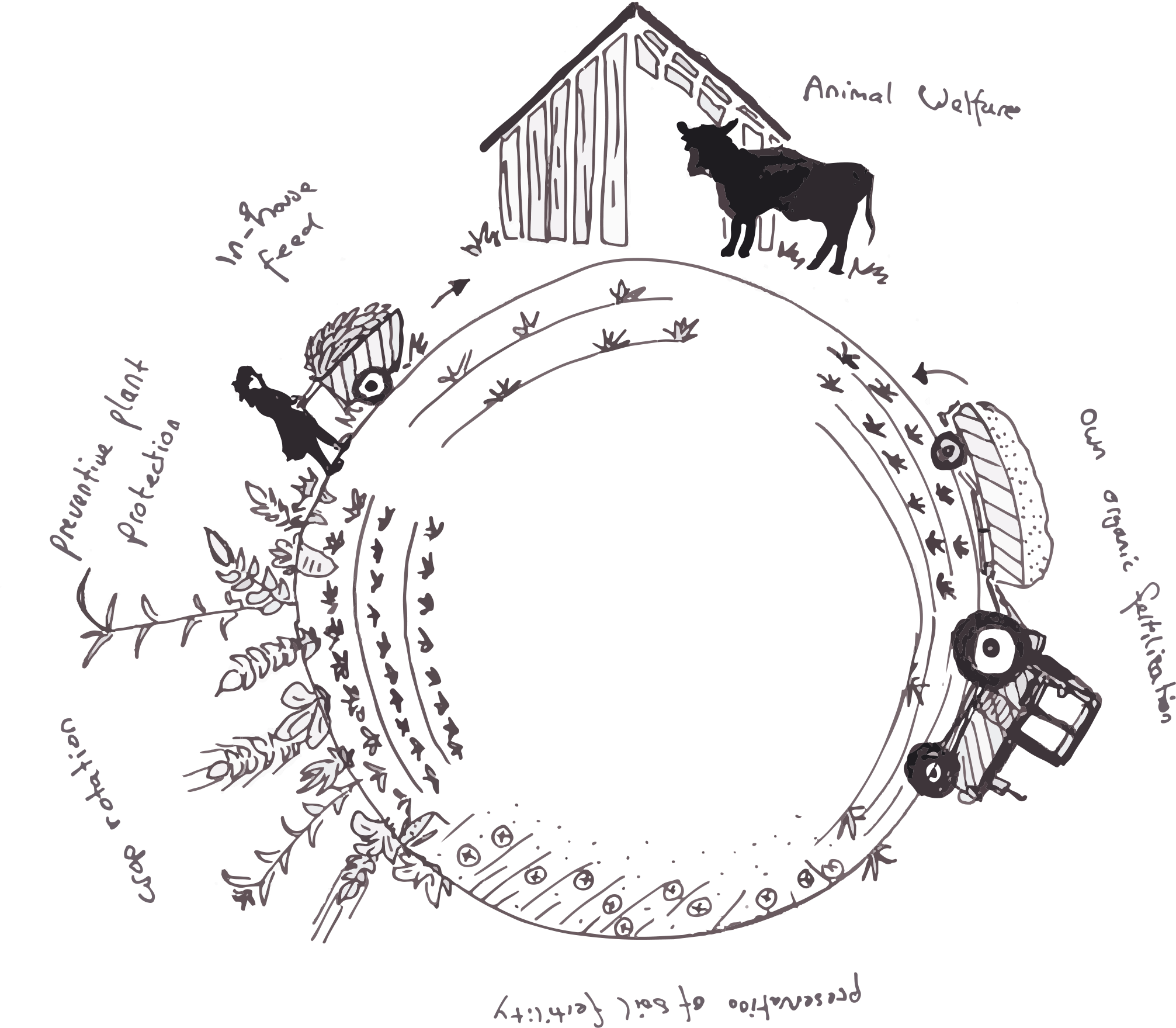
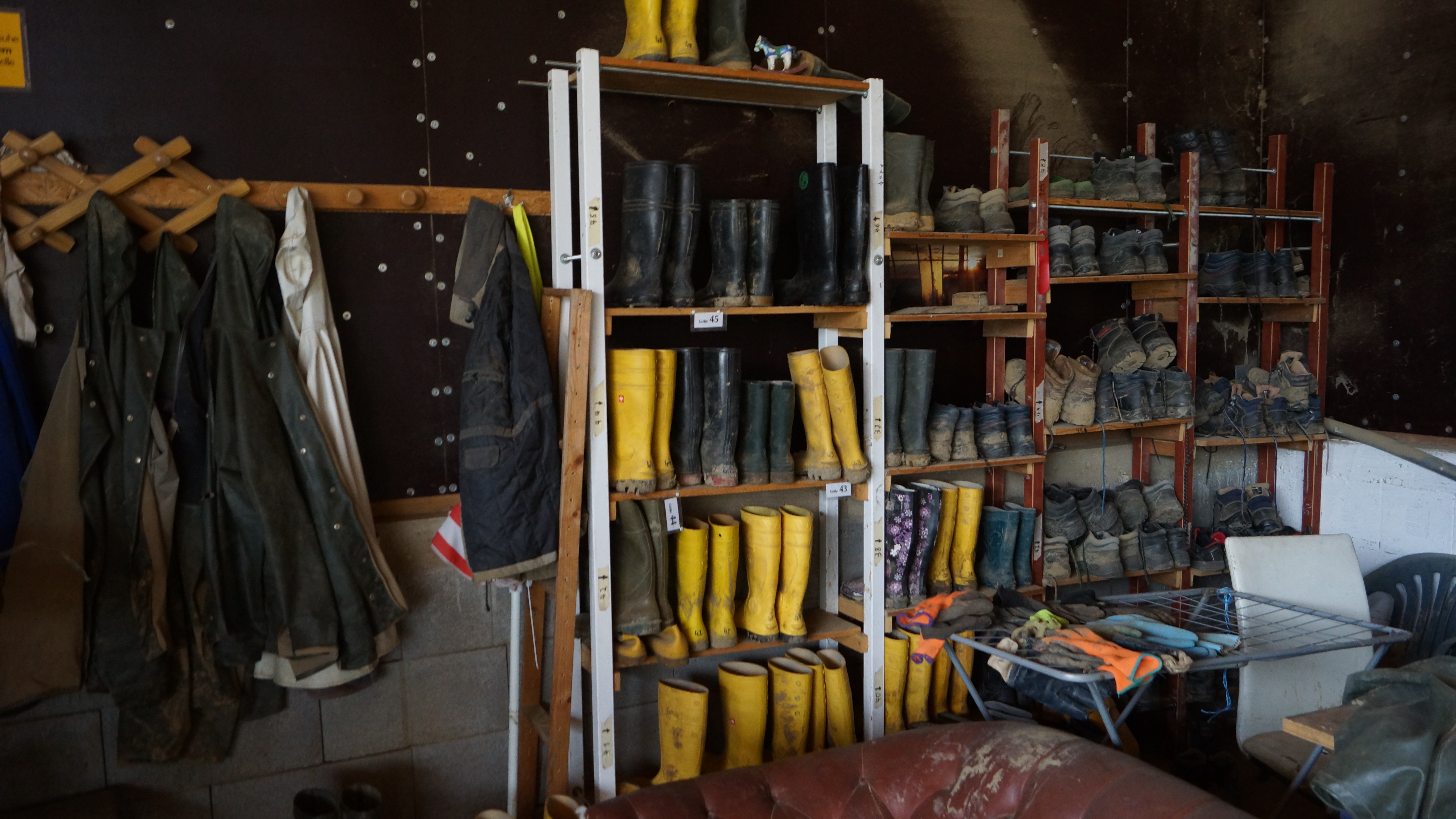
But how does the association manage to supply all of the 270 members?
Lukas, one of the gardeners, told us about the beginnings, in his lecture about the cultivation planning of the Garten Coop: “In 2011, there was no concrete cultivation plan. First, 170 lettuces – one per member – should be harvested weekly. Only 2 hectares were planted with the best soil quality, the rest of the 9 hectares was first planted with clover grass to promote the humus structure. In the second year, a cultivation plan was developed to serve 300 households.”
Fabian, a gardener has designed a plan for a twelve-year crop rotation. Various plant varieties are divided into strong and low-growing crops. The cultivation phases are then adapted to the nutritional needs of the plants. In the foil tunnel, the crop rotation changes every six years. Cucumbers, tomatoes, peppers, salads, corn, kohlrabi, arugula, radishes, beetroot and sweet potatoes are grown here.
Strongly nutrient-demanding plants are plants such as pumpkin and cabbage. Medium nutrient-demandings are carrots and spinach, for example. Weak nutrients-demandings are legumes, herbs and cress. Fertilizing with clover which will planted in the field.
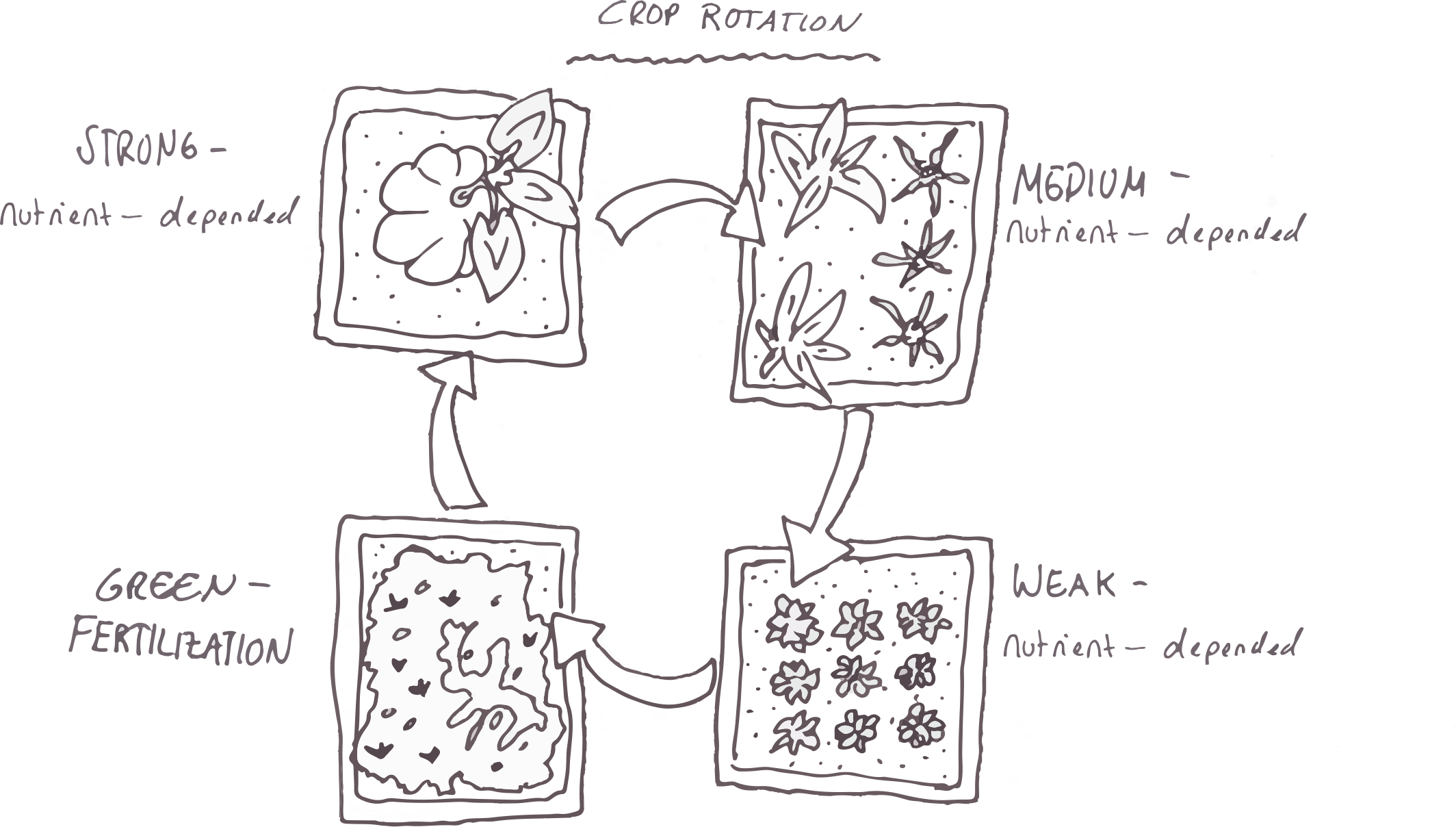
As the financing of the cultivation is carried by all members, growing the vegetables can be independently of yield and competition. This concept makes it possible to grow not only high-performance varieties, and thus contributes to the preservation of rare vegetables. These are immensely important for biodiversity. „In our project, we have the freedom for cultivation experiments, but it has nevertheless an agricultural pragmatism, so in the tomato example, we have the main variety Tika. Tika accounts for about half of the stock, there are still 3-4 minor varieties and a few varieties of trial, „says Lukas. „It‘s about whether the plants are profitable and able to supply the community, but they are not sick and that they can be distributed well. It is especially important that they do not burst too fast.“
The lecture by Lukas is exemplary for the communication between the cultivation team and the members. Why were certain crops selected and why do only certain vegetables end up in the boxes at the distribution point?
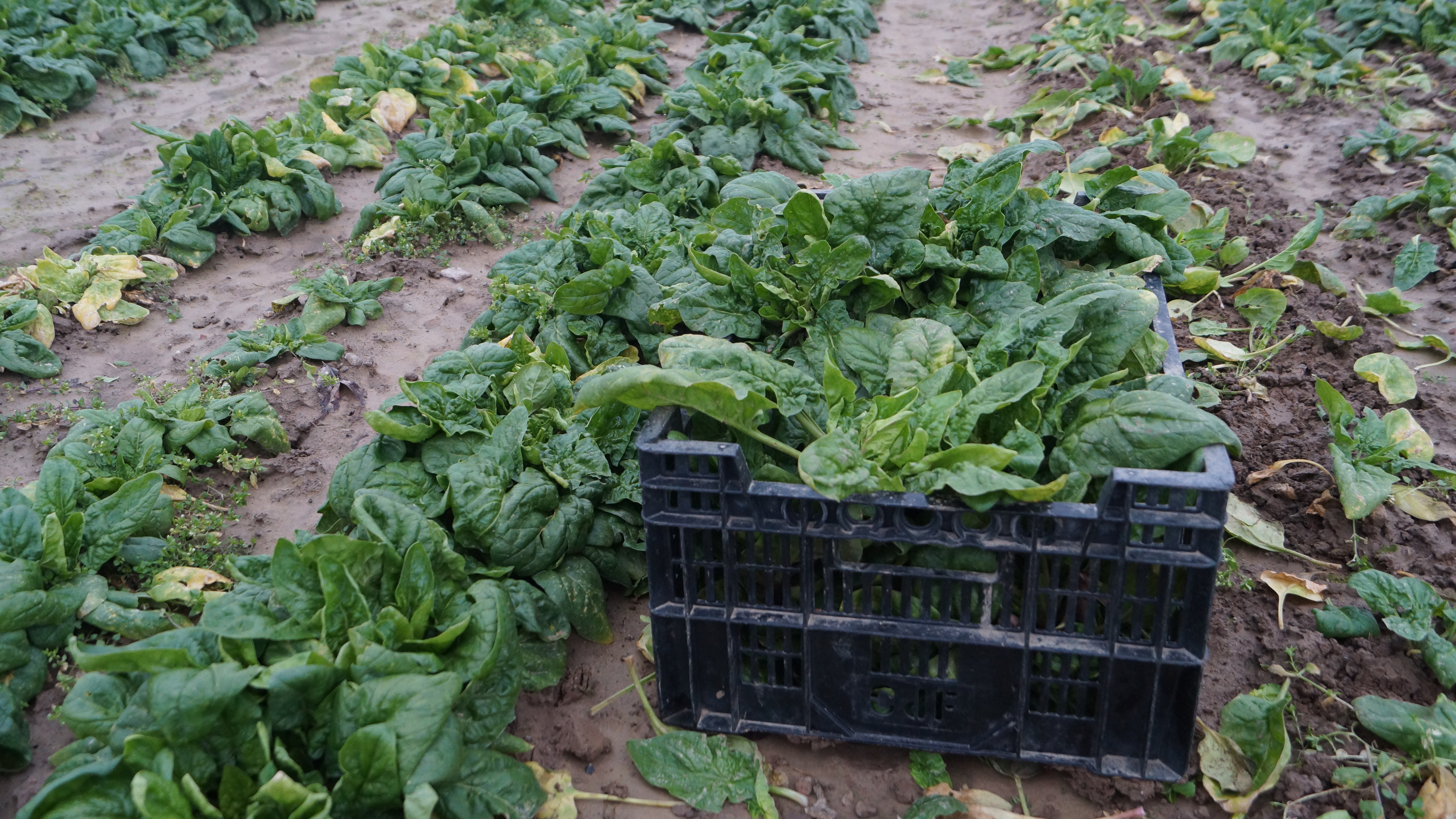
Currently, the Garten Coop produces flour and different vegetables, but they can`t afford a complete supply because the yard area is not big enough, or the plants wouldn’t simply not grow there, like cacao or bananas, which are inseparable part of life quality for many people. Not all wishes can be put into reality, for example, nutmegs pumpkins or strawberries, would grow magnificently in Tunsel, only the further processing or harvest would be too much work. „In principle, however, anything is possible, if only enough dedicated members will be find,“ says one of the gardeners Vincent to us in an interview.
„In the Garten Coop quite different realities comes together. It‘s a compromise between people‘s utopias and the reality. We must find compromises, how we can put these things together. “
As there was a high turnover among members and there were also changes in the team of gardeners, it is particularly important that the communication between the cultivation team and the remaining members works well. Via an e-mail distribution list, members receive news about the field and are invited to events and member operations.
Lukas, who has been a long time part of the project, will soon leave the Garten Coop. „We had some conflicts in the team, which was also because there were many changes. There are certainly 15 different gardeners who are working in different constellations here. Despite such conflicts, we are now entering the 8th year and the project exists and operates at a certain size and is still in a process of progress. Different working groups are contributing, and I think that is very important, because this idealistic cultivation can only take place when people take the self-governing cooperative seriously and invest time. „
The Garten Coop is a flagship project in solidarity agriculture, with a strong involvement of members at all levels. Not only on the field, but also in the organization. Different working groups have been formed in order to be able to solve the different tasks.
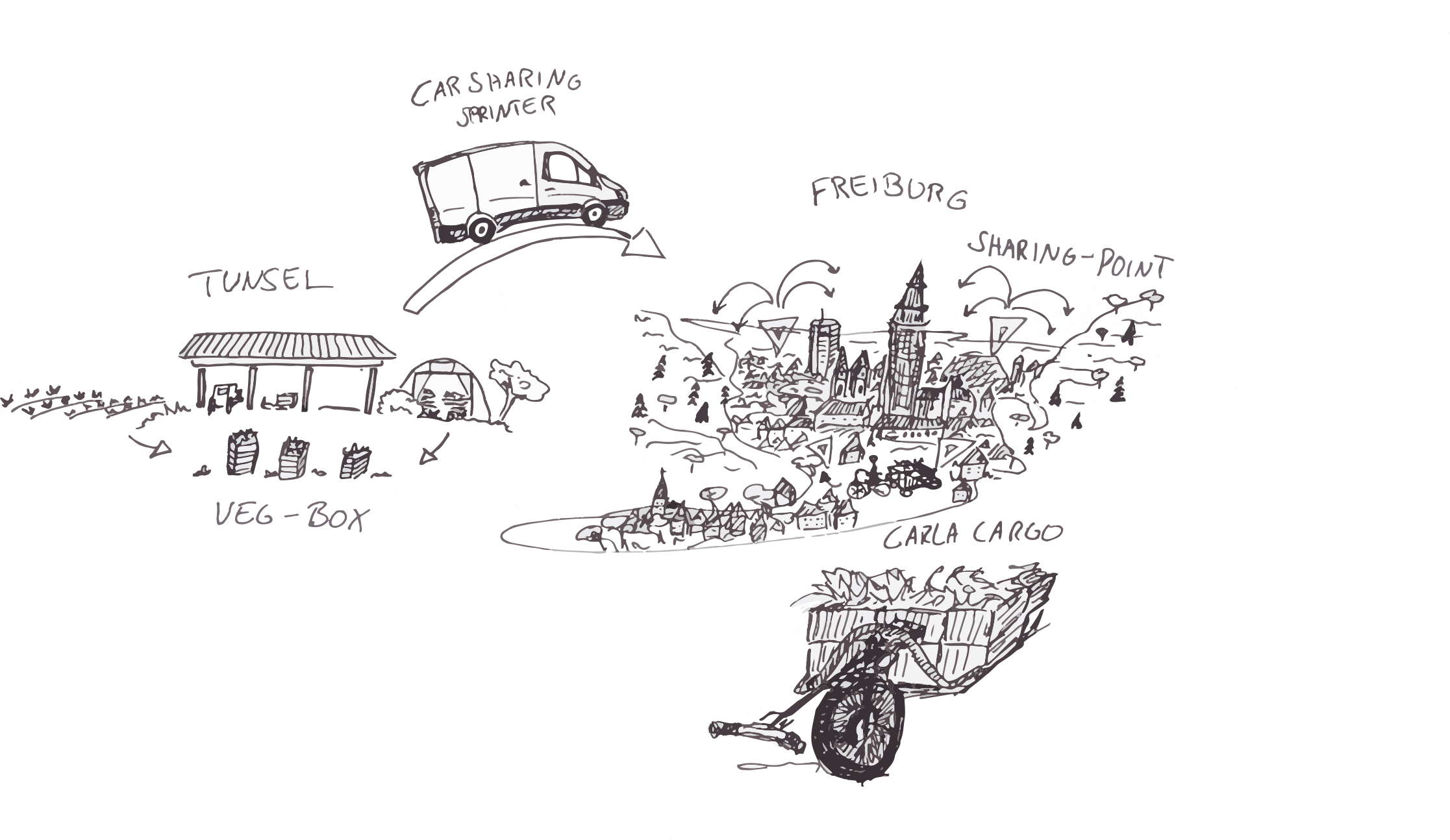
Values are taught through educational events, such as crop or cultural care assignments. Each member should come to at least four missions a year. „That shows just how much work is needed until the carrot is on the plate, it must be sown and flamed, will be weeded by hand and chopped, then comes the harvest and so we have some of it in the winter, it is stored in the cellar. For distribution, it is then taken out again and washed. That‘s a lot of work steps and if you know what you mean, that‘s again a whole different appreciation for food, „says Vincent.
During the assignments, the agricultural practice will be introduced under guidance in different areas. From the dunging of the stables and liberate the plants from the weeds, to the harvesting of spinach leaves, experience can be gained in many ways. Most of the missions begin in the early morning. After a few hours you meet for coffee or tea. With a light meal in the stomach, it goes back to the field until there is a delicious lunch that is always cooked from the fresh vegetables harvested on the field. Especially it is nice to talk with the others on the field while working, this strengthens the sense of community.
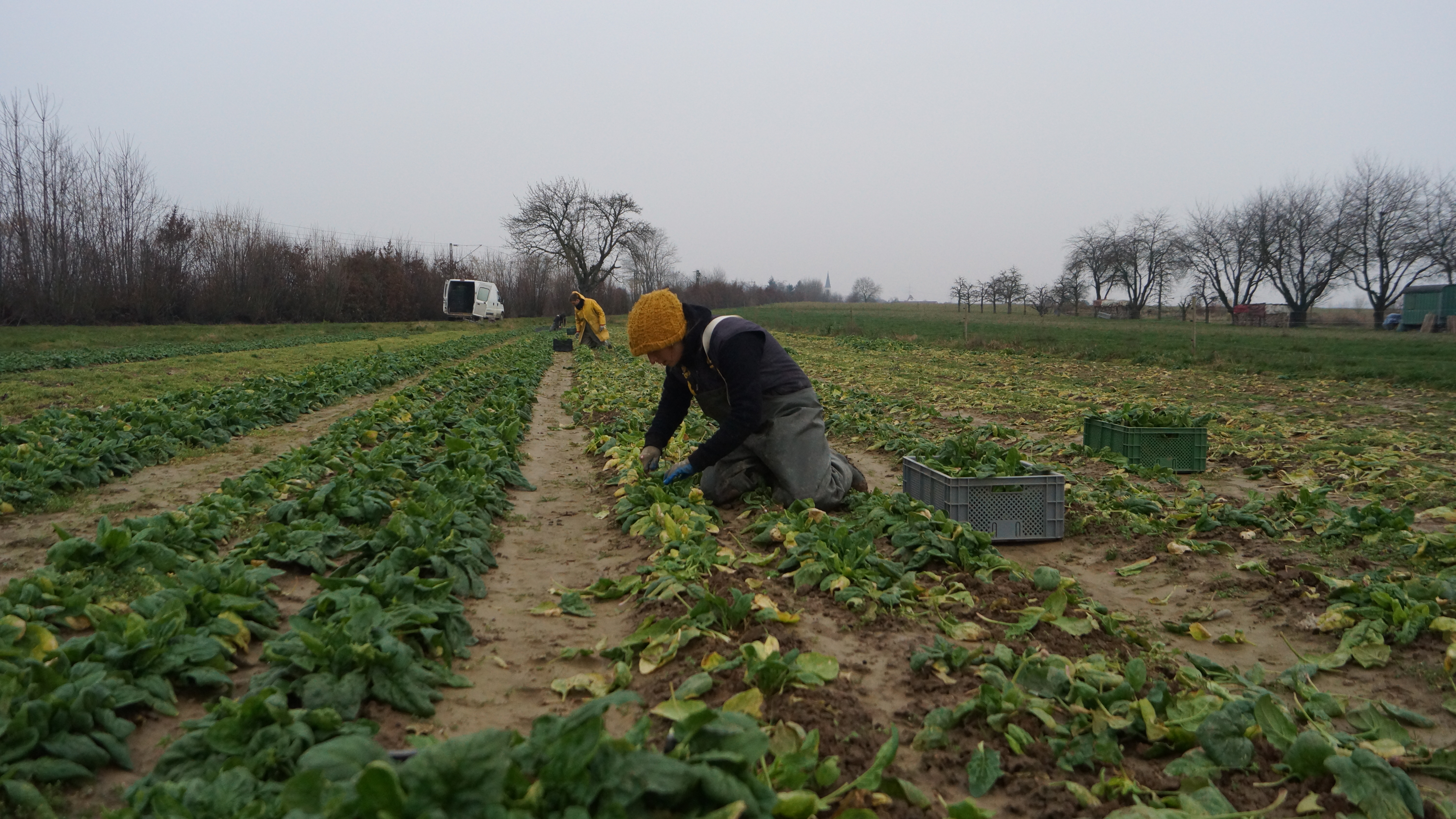
In the future, the Garten Coop wishes further cooperations. From the Demeter nursery Piluweri, which is one of their cooperation partners, they received, young plants for example. In addition, there is the possibility that they give their own seeds to Piluweri. Collaborations like this shows how important good networking is.
Not only the anticipation to cycle to the distribution point at the weekend, to pick up the delicious vegetables and to prepare it together with your friends, but also the opportunity to get involved, participate and learn makes the Garten Coop so special for us. We are curious how the Garten Coop will evolve in the future and we are looking forward to support them in the upcoming tasks.
Nature, Culture
Garten Coop in Freiburg
Garten Coop sees itself as a member of the movement solidary acriculture. How we can shape an alternative way of living with humans, the earth, plants and animals in order to contribute to societal change? The Garten Coop wants a change in food production so that environmental, resource-saving production methods and strengthened of small-scale structures are created.

Permaculture-Info
Permaculture means cultivating a lasting culture of various vegetables, herbs and fruits throughout the year. The cultivated varieties should naturally grow in harmony with nature and in interaction with each other. It should be created by various cultivation options and design principles, to get the best conditions for the plants. The permaculture promotes diversity, all proceeds that you throw off are shared fairly and no economic intentions are pursued.
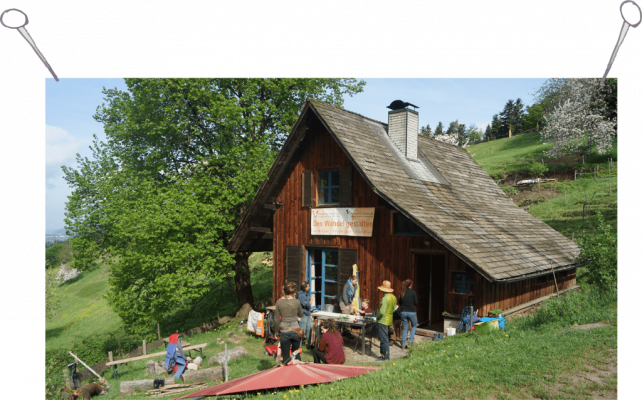
Originated from a permaculture design course held in 2013 the association Permakultur Dreisamtal e.V. was founded. Part of the course was a workshop initiated by Ronny, in which as an exercise a permaculture regional center on the Häuslemaierhof was planned.
What was conceived in the small groups, in which the farmers also participated, was so convincing that they decided to put the results into practice. The basic idea of permaculture regional centers is to create a place in every region of Germany where permaculture can be viewed, experienced and made accessible to everyone. However, in the case of the Häuslemaierhof, the rapidly growing interest in the project collided with the privacy of the owners so the regional center, was followed up. This so-called „forest garden“ encompasses a wide variety of fruits and vegetables as well as game and crops, which are growing throughout the year.
How does permaculture work and what does it do?
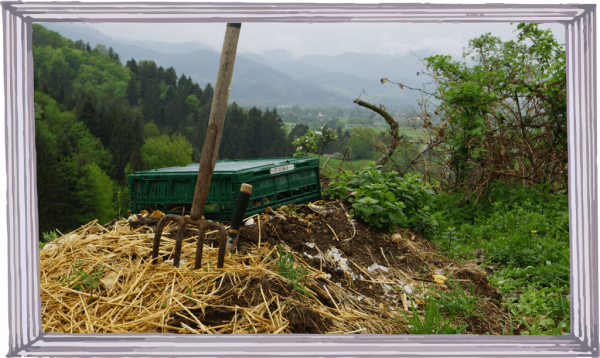
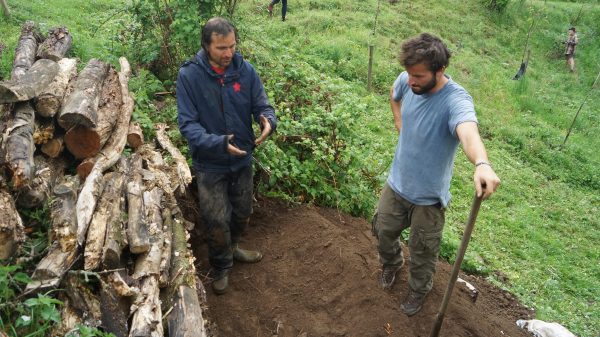
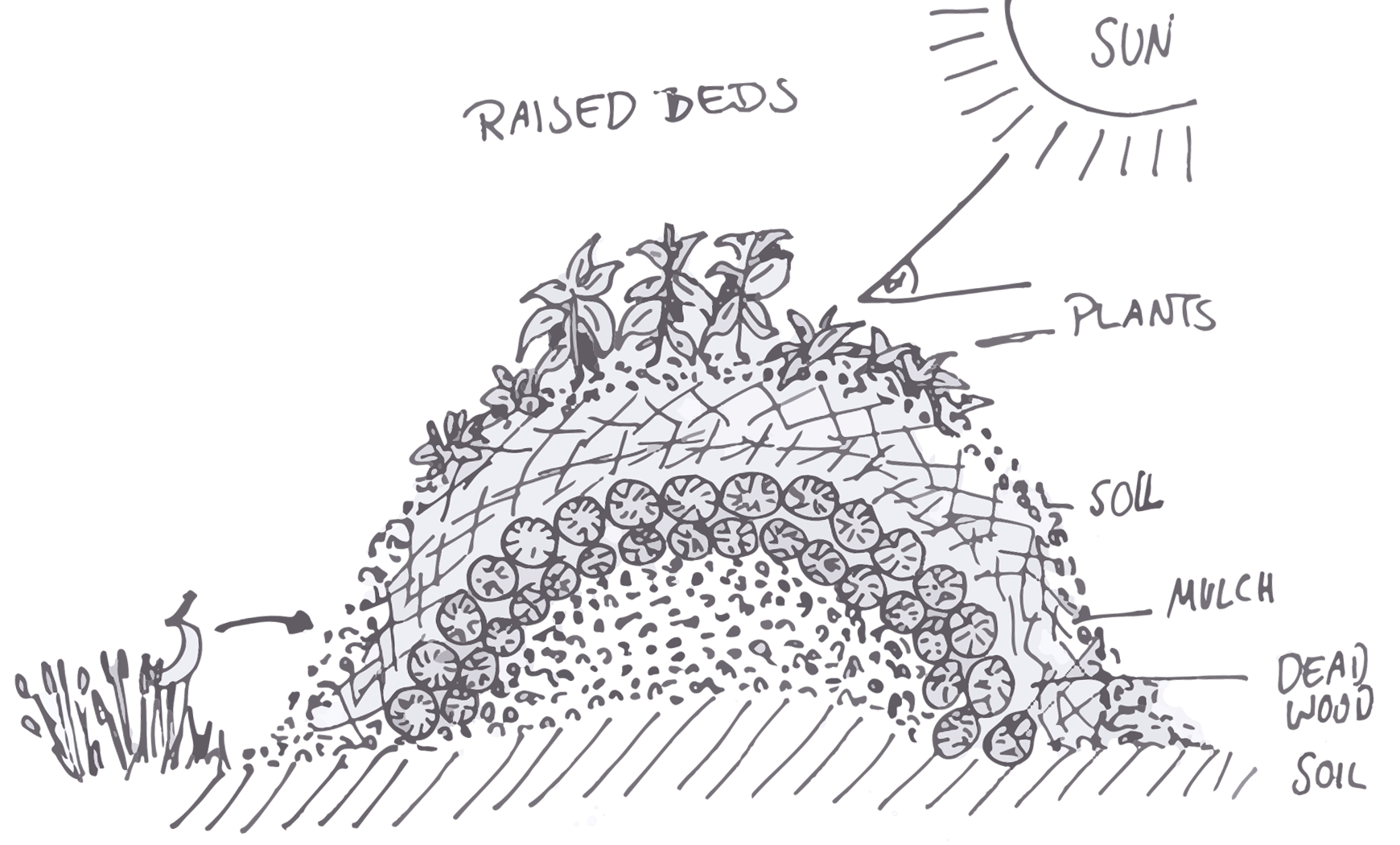
In the case of a raised bed, it is the loose soil that makes a better conversion and decomposition of organic
matter, or the high position of the bed, which ensures more sunlight.
Apart from that, the ethical focus is extremely relevant to dealing with these complex systems, Ronny adds.
A raised bed without meaningful human benefits or fair sharing of resources would therefore not be in the sense of permaculture „. For Ronny, permaculture is an interesting way to move away from product thinking and focuses more on design principles that emphasize quality. However, the theoretical knowledge with which possibilities and methods these qualities are implemented in practice is indispensable.
Bill Mollison, co-founder of modern permaculture, believes that all the world‘s problems could be solved in the garden. We asked Ronny if this would not be a solution to our global problems, such as famine or environmental degradation, if all people had small permacultures.
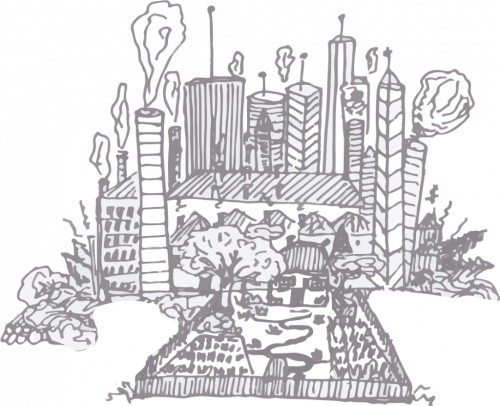
„earth care, people care, fair share“
is one of the guiding principles in permaculture. Take care of your environment, take care of your fellow human beings and share with them what you have. This guiding principle, which is also to be understood as an invitation, shows that permaculture pursues equally social and ecological goals. Ronny would add a „yeah“ to „earth care“, „people care“, „fair share“ because „Permaculture should also be fun and understood as a way of life,“ says Ronny.
The Book „The living earth – Conservation Society of New South Wales“, published at Cornell University in 1980, describes the basic principle of a permaculture as, an ecologically, economically and socially sustainable economy with all resources. However, Ronny believes that sustainability alone is no longer enough. „It is important to differentiate between sustainability and future perspectives. The idea of sustainability is basically not to get out of resources in a system, as can regenerate naturally again. Today, but beyond the borders resources are being mined. It should not only be the task to preserve it, but also to build it up so that future generations can continue to cultivate culture.“
A permaculture does not provide any material solutions or recipes to solve the problems of our world. Rather, ethical and philosophical answers are sought, which are intended to significantly change the consciousness of man.

Werkel-Tage
This spring wonderful people gathered for a week at the Häuslemaierhof to awaken the permaculture from their hibernation together. In the process, the infrastructure was repaired again, overgrown paths were newly created, together they cooked organically / ecologically and laughed a lot at the campfire. Beds were rebuilt for planting and crops were freed from weeds. A film tunnel for tomatoes and a rised bed was created, built apiaries and the cutted material was used as mulch, for evaporation protection and erosion protection, and nutrient dispensers for rised beds and Co. reused. At various points where phosphate deficiency exists, urine from the two humus toilets was put on the culture as an important nutrient support. All this happened in just a week. We did not know what to expect when we went to Häuslemaierhof with „Grisu“. It was just a beautiful week in which we all made a lot together and could collect a lot of inspiration. We thank all of you who have been there, and especially Ronny, for all the beautiful insights and knowledge enrichment you have given us.
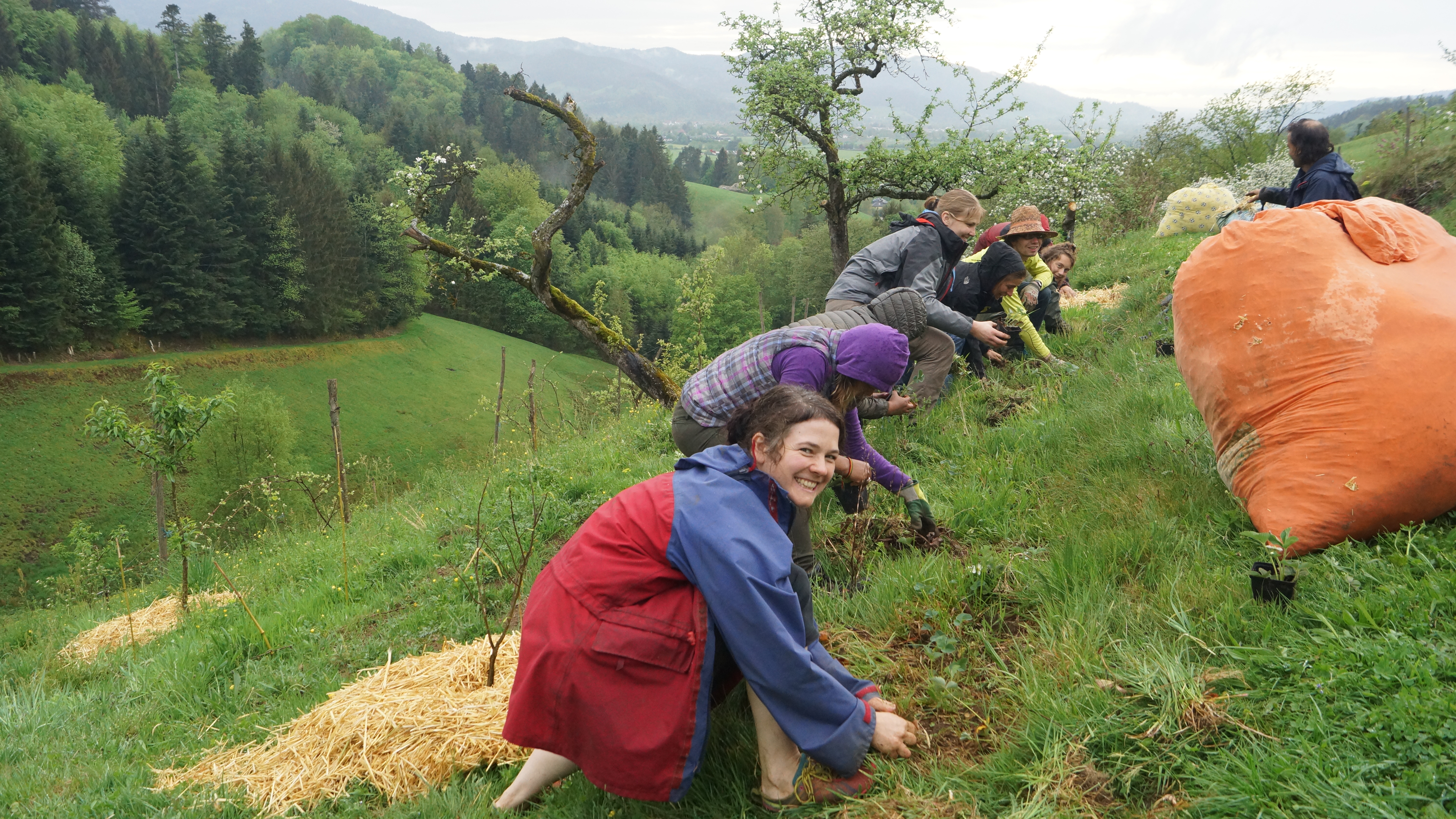
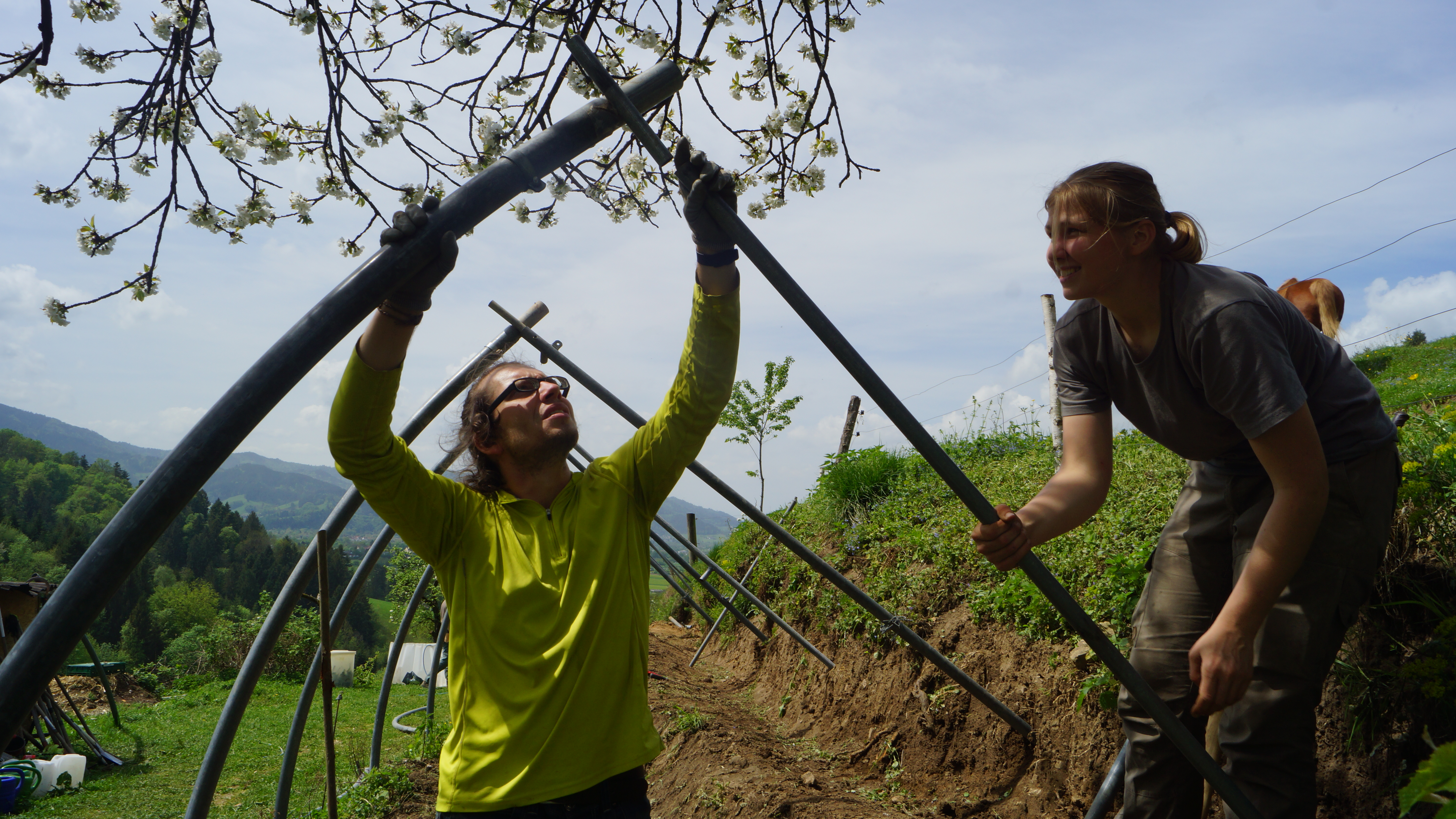
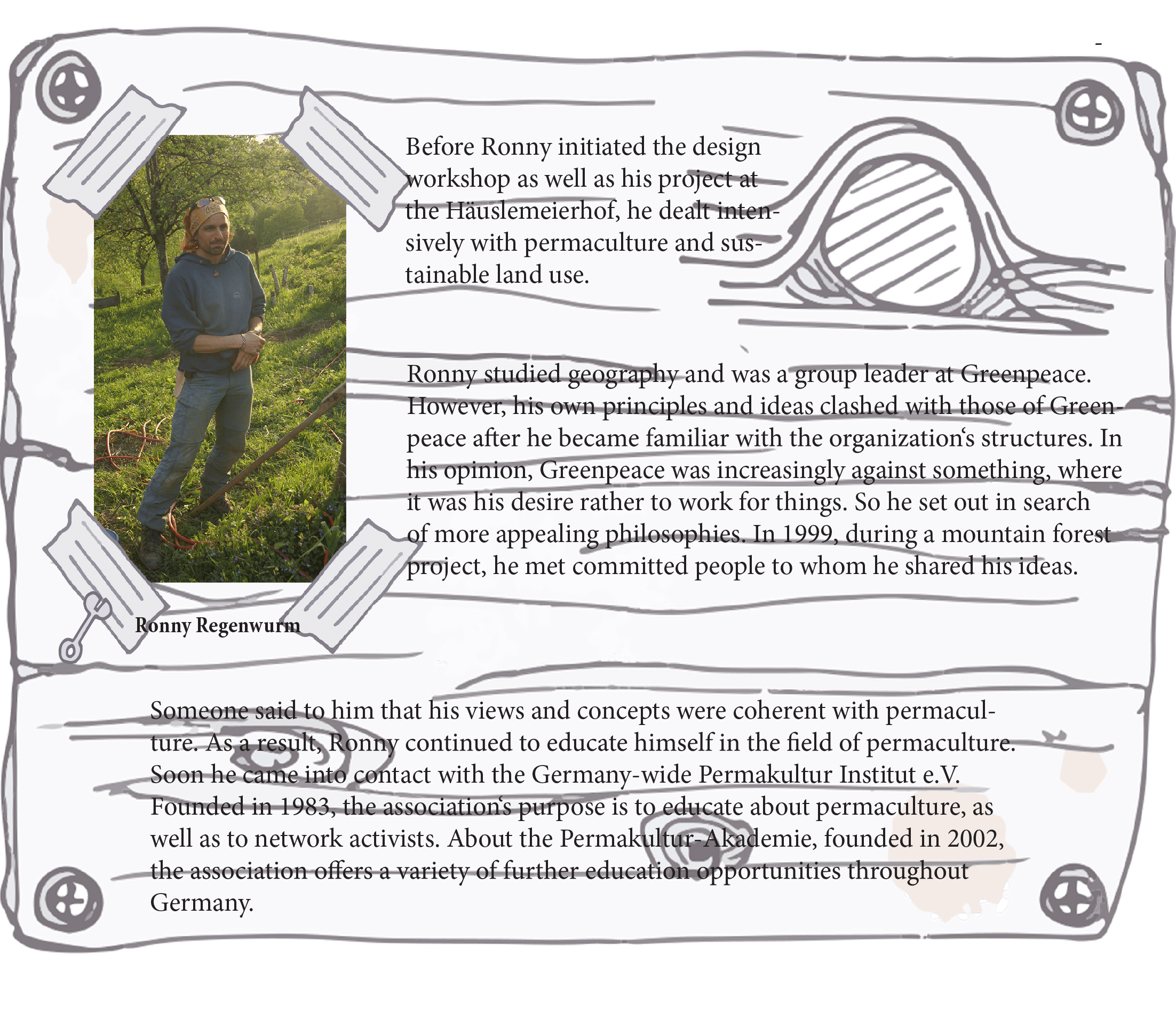
In the south of Germany lies Freiburg im Breisgau, a city that hosts many different sustainable projects for humans, culture and the environment. It is an inspiring place, filled with great spirit and therefore what we as Funkenwerkstatt call our home: From here we want to establish our sustainable network and connect people.
No matter if exploring the partly car-free district of Vauban or communities such as the Grether area, Freiburg`s people are just like the city, open and inviting and fully committed to actively shaping the place. Thus, it was not a surprise that when we were in search of a repair cafe in the Grether area, we encountered a special place called Strandcafe. There we came in touch with the team of zusammen leben e.V., and immediately, we realized that this is an ideal starting point for our magazine. Zusammen leben e.V. is an initiative that aims at connecting people of different ethical backgrounds, cultures and lives by offering a welcoming space to them. Through diverse projects and a wide range of programs, visitors are introduced to a culture of sharing and living together. The association’s basic principles are the three aspects of social, cultural and a more sustainable understanding of each other.
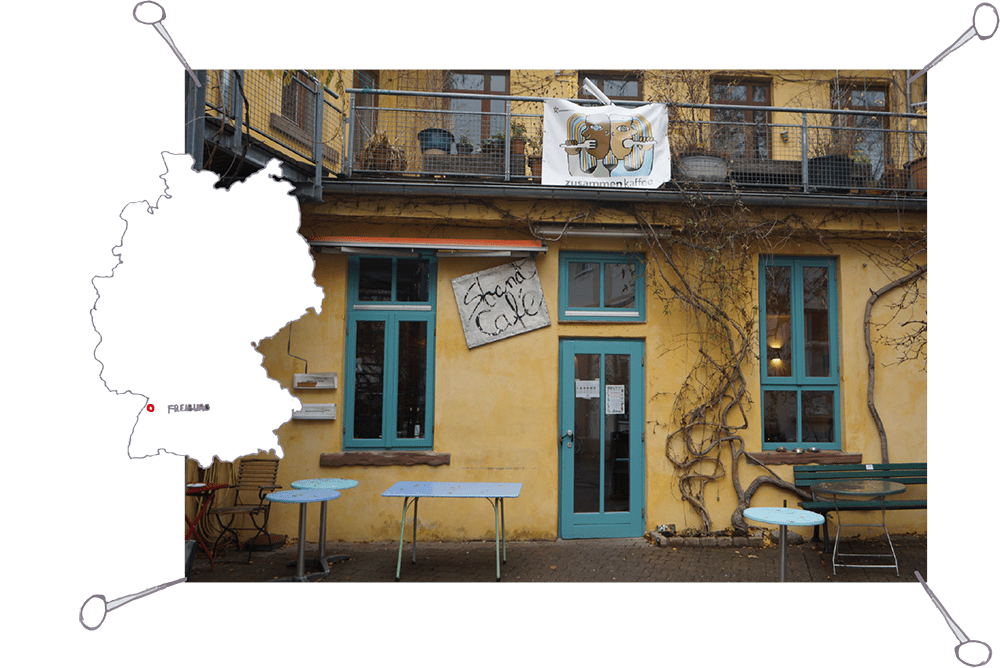
This concept is realized through the threefold projects: zusammen Kaffee, zusammen kultur and zusammen garten.
Everyone is welcome in the „zusammen Kaffee“, which opens its doors at the Strandcafe in the Grether area from Tuesday to Thursday. It is a cafe that is entirely based on donations, an idea that originated by the „Caffè sospeso“. In addition, it invests its profits in free food for those in need. But not only is it truly collective and social because of its financial approach, also the integrative concept is extraordinary: The cafe involves people from all over the world in the cooking process, and thus obtains various meals from different parts of the world, leading to an outstanding culinary delight. Additionally, group tables in the interior invite visitors to start chatting. Hence, a space is created in which people can communicate regardless of their background and get connected. „It builds equality and allows us all to sit around a table, share meals together.
It is an integrative approach that I find very beautiful. I am already excited whom I will get to know and talk to in the upcoming weeks“, explains Hannah, a young student from Freiburg we addressed at the café.
What someone pays for the meal is at his or her own discretion. A donation of just 5€ for example covers the entire costs for the dish. Everything that is paid in addition, is spent on a free meal. Dishes vary moreover on a daily basis. Tuesdays for instance, Syrian food is served and Wednesdays are aligned to the Vietnamese cuisine. People from the respective countries then prepare the traditional meals. These are often refugees who then receive the possibility to share some of the culture and heritage they had to leave behind.The ingredients
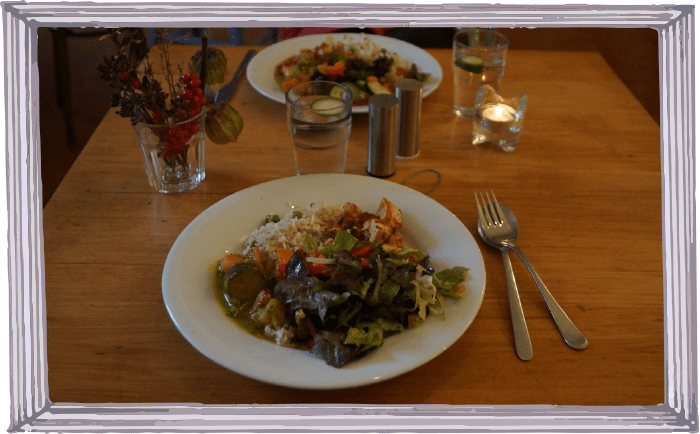
used in the dishes are all organic and locally sourced, with exceptions for exotic ingredients due to a lack of availability. In addition to the culinary offer, the cafe also invites to a series of cultural events in order to further expand and promote the exchange of culture and people.
„This place should be like a journey without movement, where people can come in contact with each other over different tastes, music and ideas.“ shares Leo, co-founder of zusammen leben e.V. and bartender in the cafe her vision.
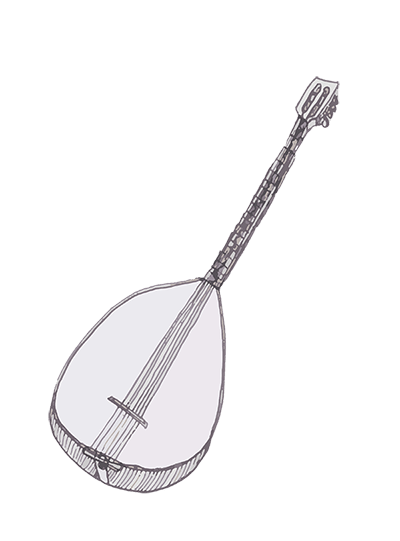
At the village brook in the Vauban district, the zusammen garten is located. Since July 2016, many small ideas have come together on a plot with an area of approx. 3500 square meters. The garden is mainly divided into two large sections: The first section consists of small garden plots, which are arranged crescent-shaped. This part of the garden is used privately. Anyone who would like to participate in the project can plant and design his/her own plot here. Whatever the plot in the end throws off can then be kept for personal use. The second large section of the garden consists of a communal garden, which is also groomed and peeled collectively. Unlike the individual parcels, the harvested vegetables are also used for joint cooking events or for „zusammen Kaffee‘s“ joint table.
If one follows the gravel paths that surround the beds, he/she comes across an herb snail: A twisted herb bed that spirals upwards just like snail shell. Due to the different heights and positions of the herbs, an optimal light supply of the different plants is taken into account. Herbs that require a lot of light are at the top of the spiral, for example thyme. Another advantage of the herbal snail is that different plant species, which actually prefer different locations due to differences in soil, can thus be grown on the same area. Along the way you pass a fireplace that invites you to join in the cooking. The fireplace is the central point in the garden and is connected to the „Geodome“.
The term „geodome“ refers to a geodesic dome fully covered with transparent foil. Through the translucent foil, the „geodome“ warms up inside, so that the construct works just like a greenhouse.
Its spherical and triangular struts design is very stable against weather and earthquakes. The construction also ensures better air circulation and sound distribution compared to conventional greenhouses. In addition, the „Geodome“ is used for events in the evening as it heats up quickly and stores the heat.
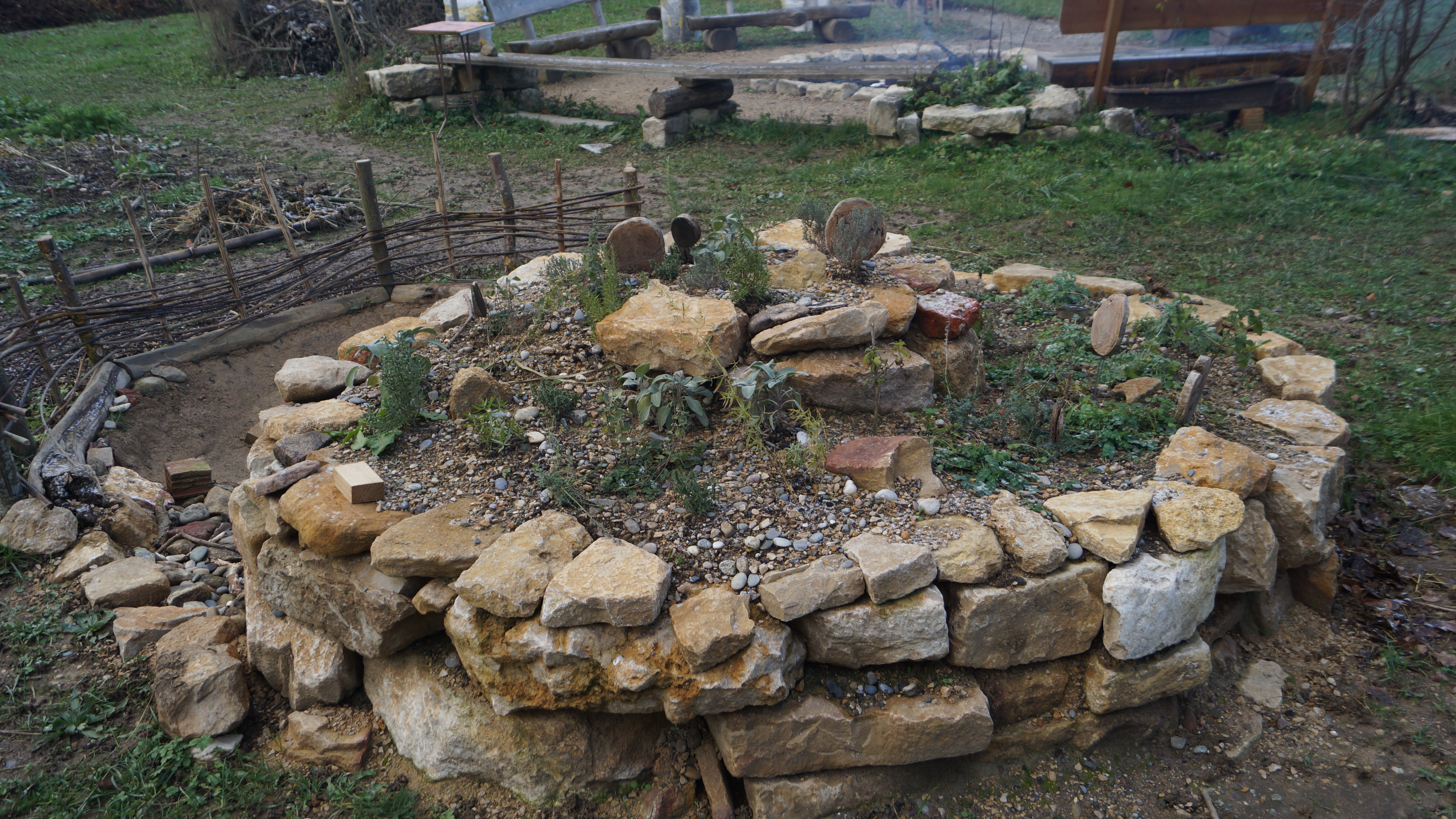
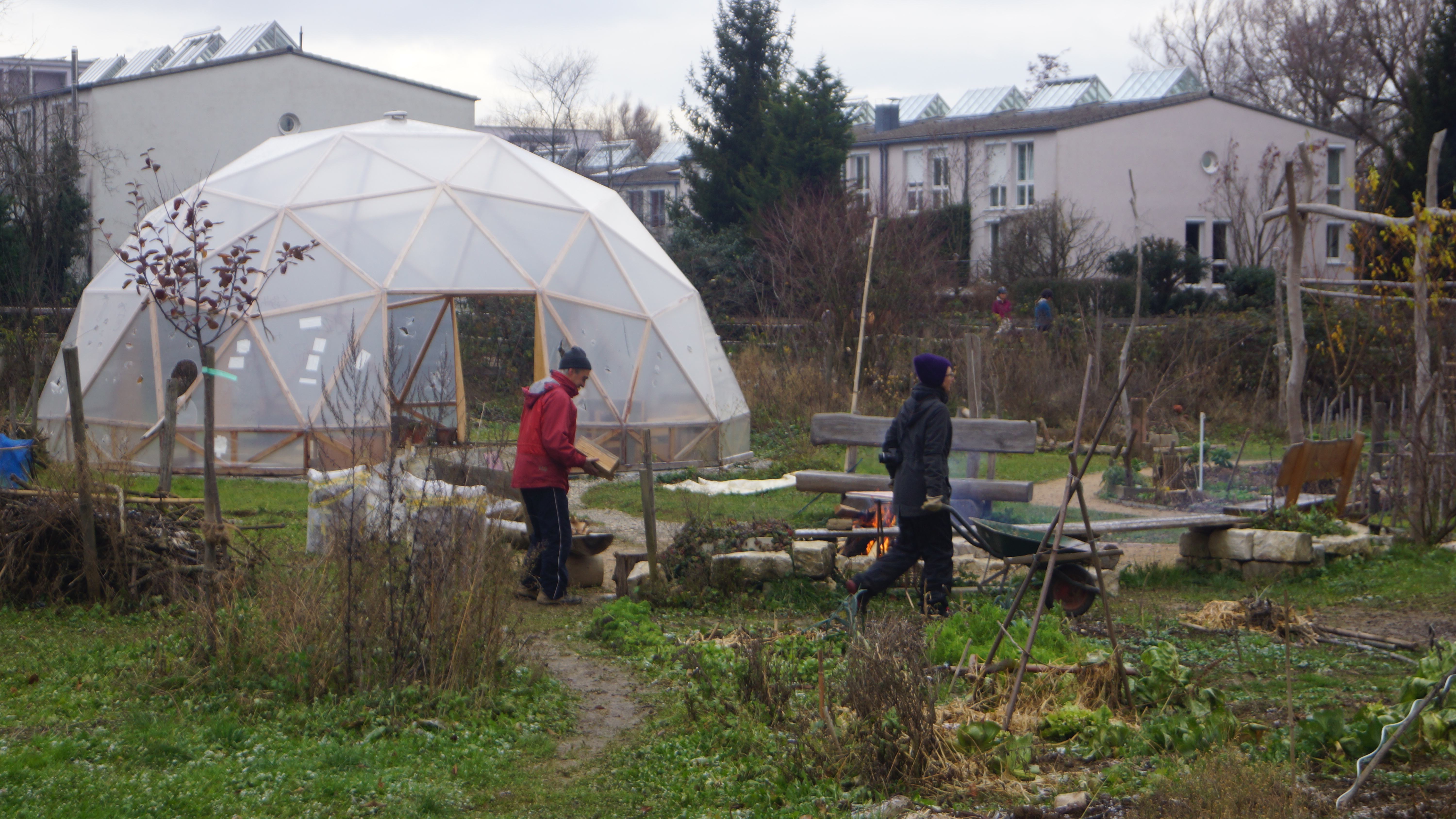
In zusammen garten, a humus toilet is currently under construction, which is jointly designed and built by the society. The „humus toilet“ is barrier-free so that even wheelchair users have access to the toilet via a ramp. Excrements are then separated: The urine migrates into an external container and can be tapped off there with a pouring can as an extra phosphate dispenser for peas. In turn, the feces are composted and used as a nutrient basis for plants. This actively creates a cycle between man and nature.
Another project in the garden is a separate mushroom breed. Nutrient and suitable for mushroom breed are mainly hardwood species such as beech and oak. However, mushroom growing is also possible with fruit and natural woods. Mainly oyster mushrooms and herb saplings as well as chestnut mushrooms are harvested. The cultivation is carried out by means of biological injections, which are used in a suitable tree trunk. Depending on the type of fungus, the first fungi develop in early or late autumn depending on the external conditions.
Together with its three aspects, „zusammen Kaffee“, „zusammen kultur“ and „zusammen garten“, zusammen leben e.V. combines all the topics that we as Funkenwerkstatt tried to highlight in our categories “Humans“, „Culture“ and „Nature“. Hence, zusammen leben e.V. shows that in an association, the combination of these three topics is possible! We thank the whole association for the interesting exchange, the joint work and the opportunity to present our first article of Funkenwerkstatt about them.
